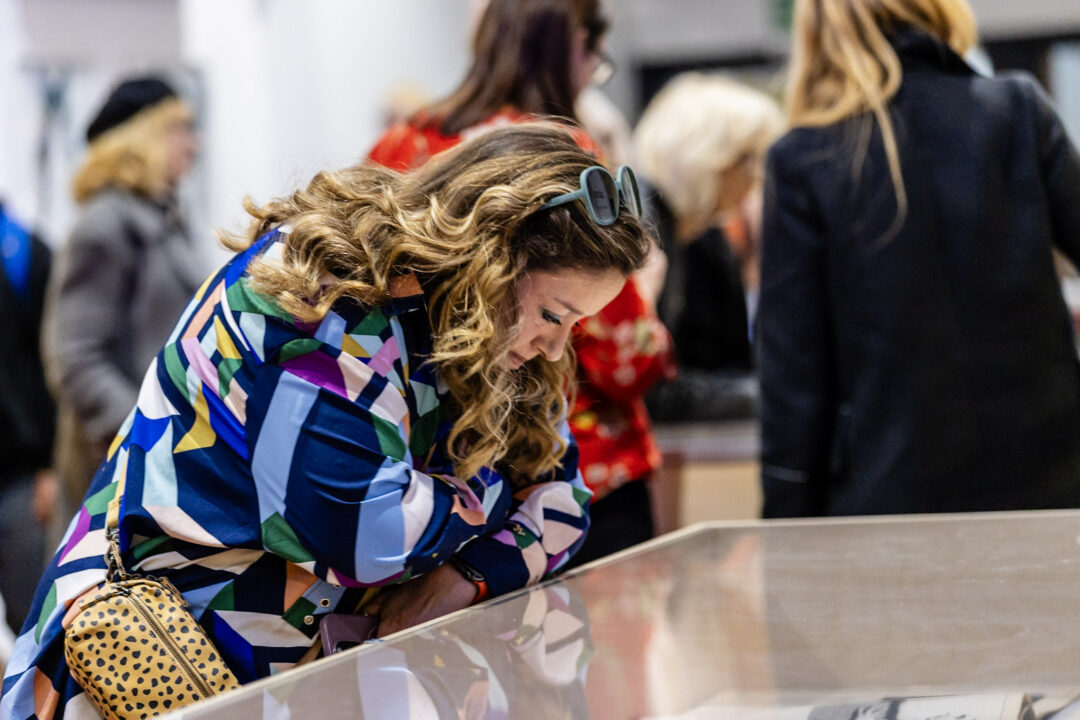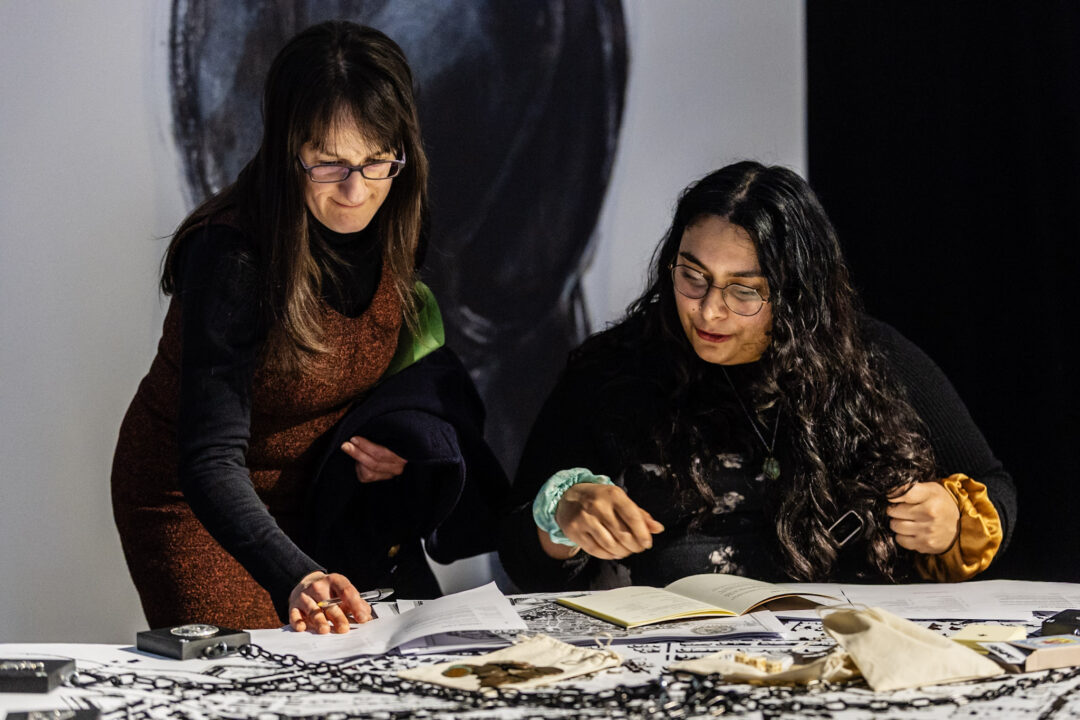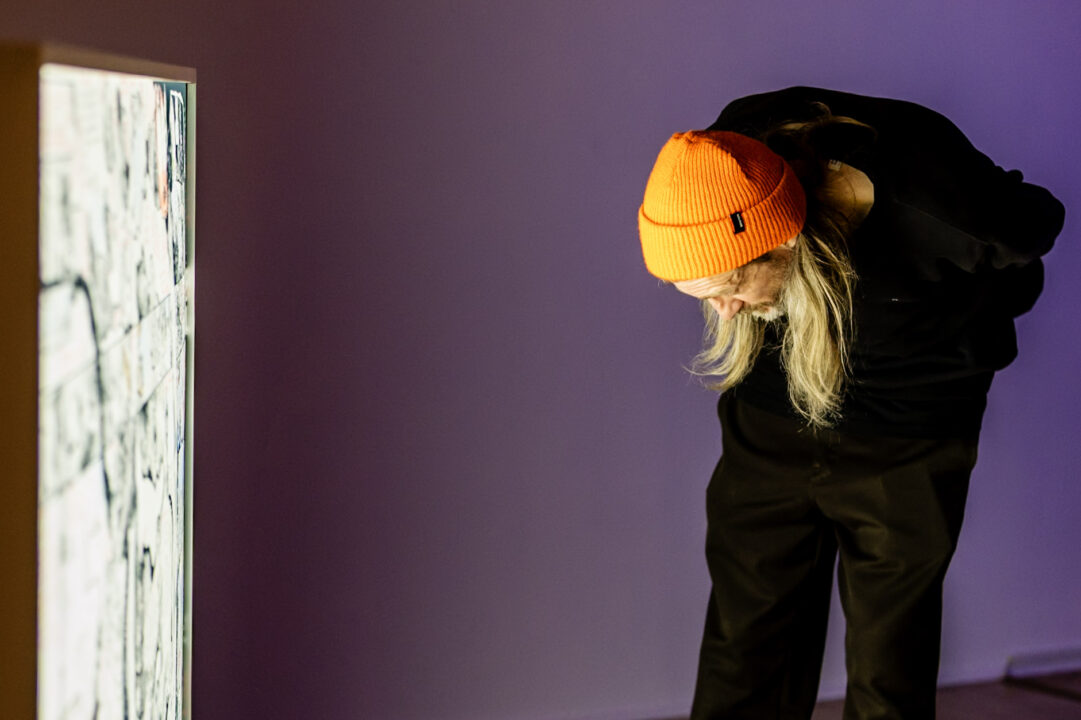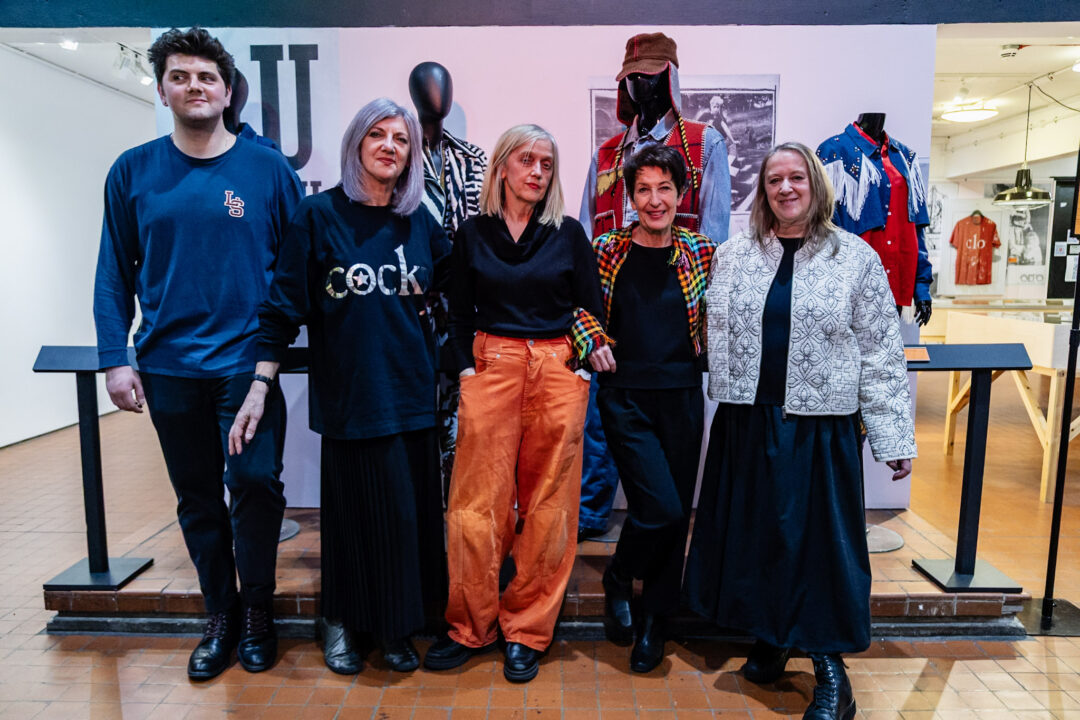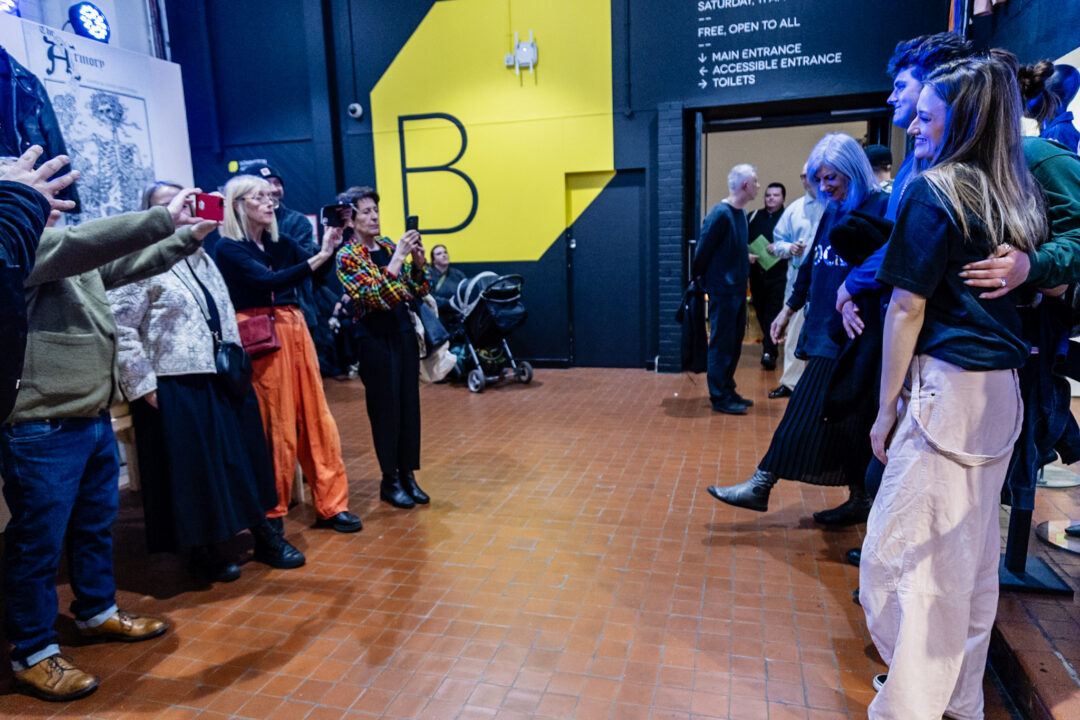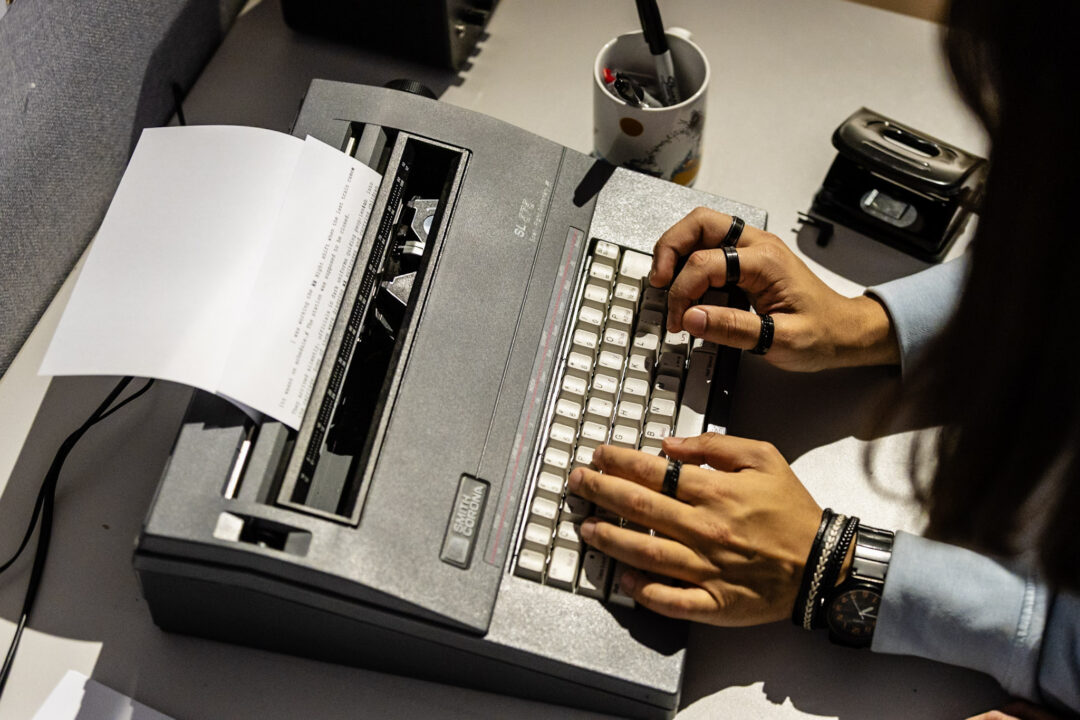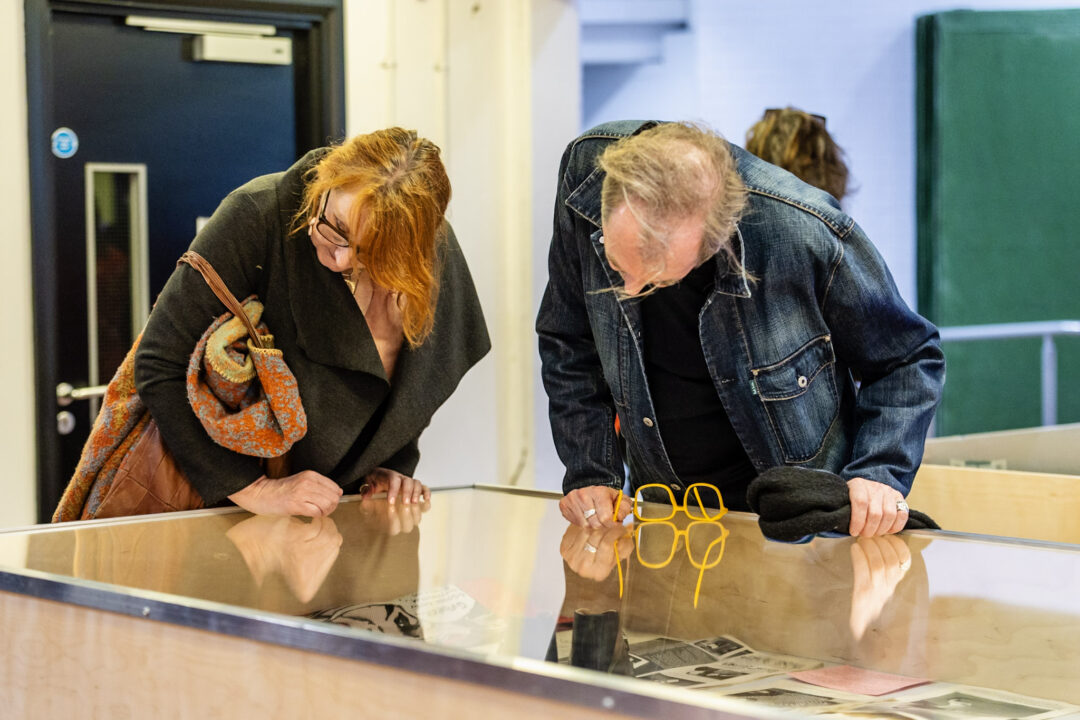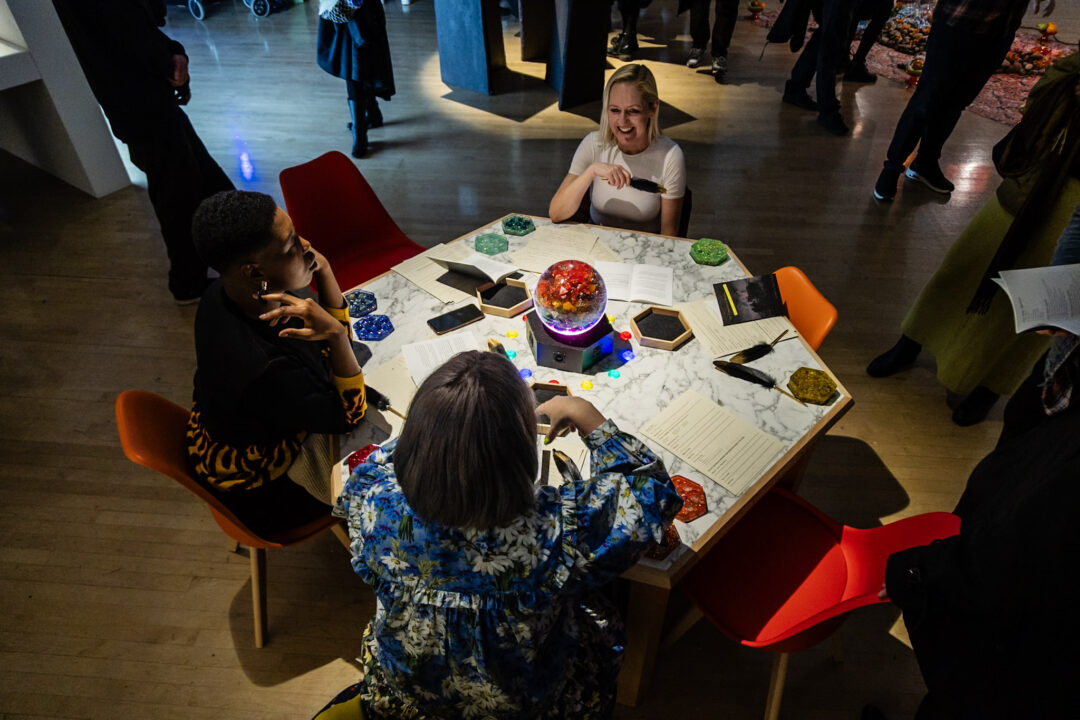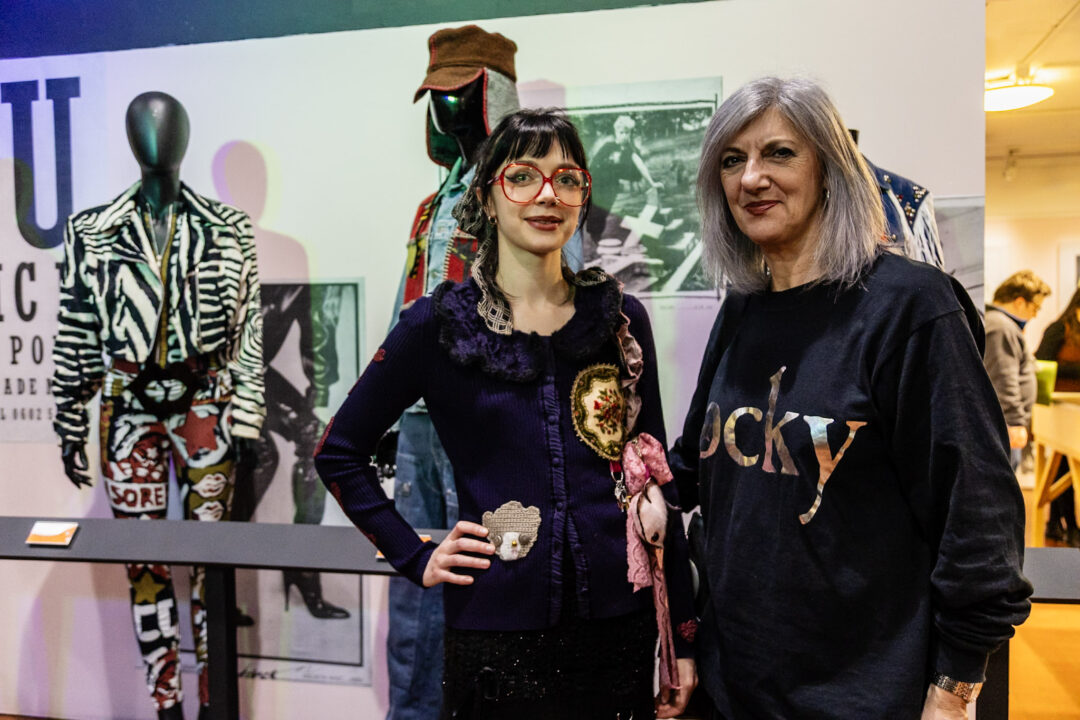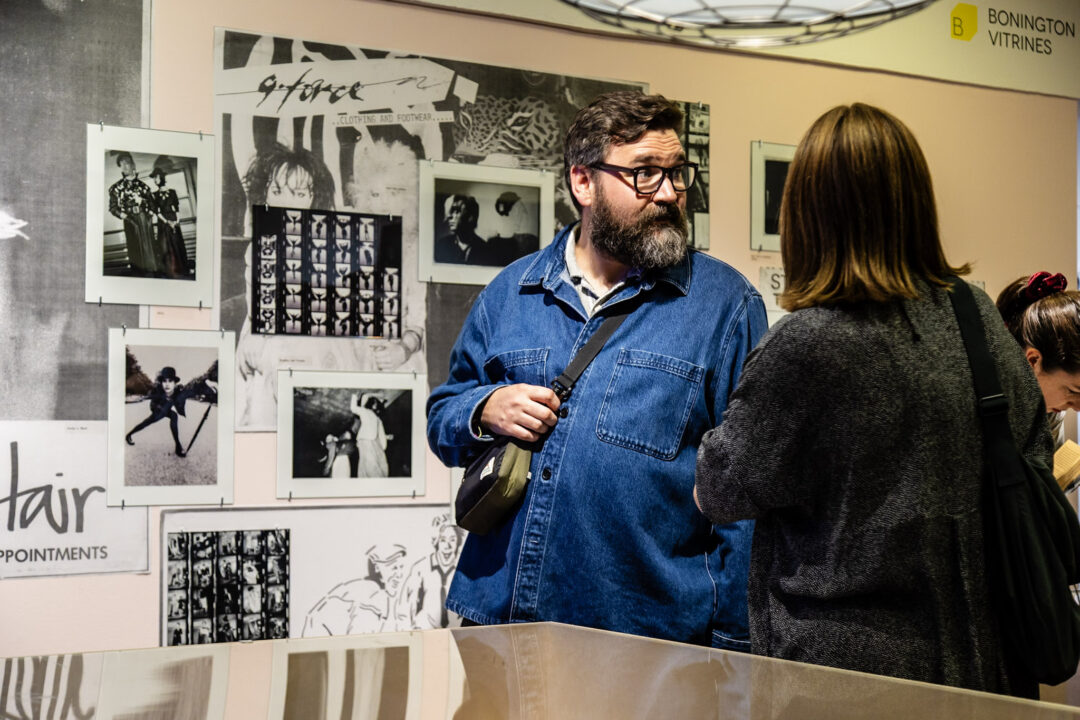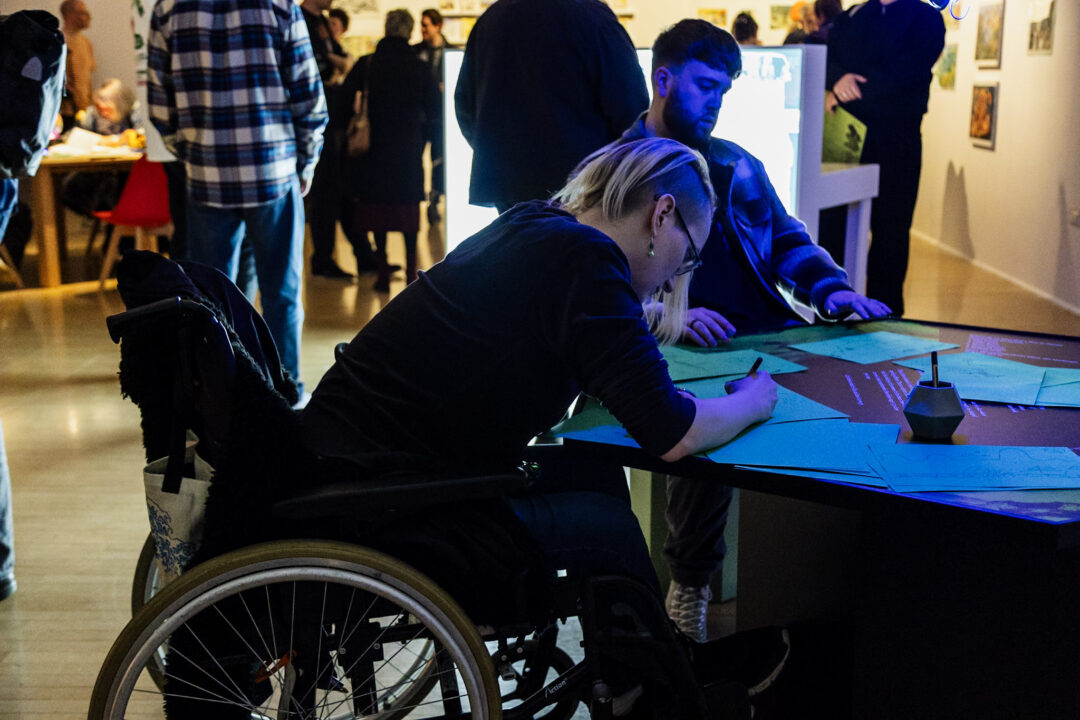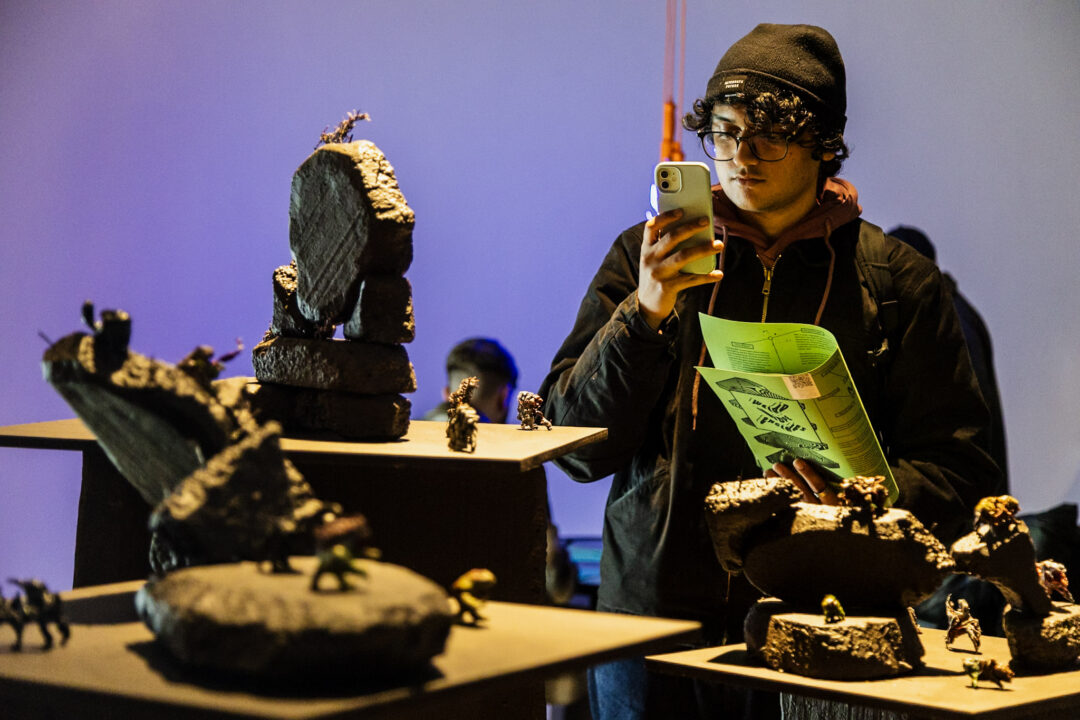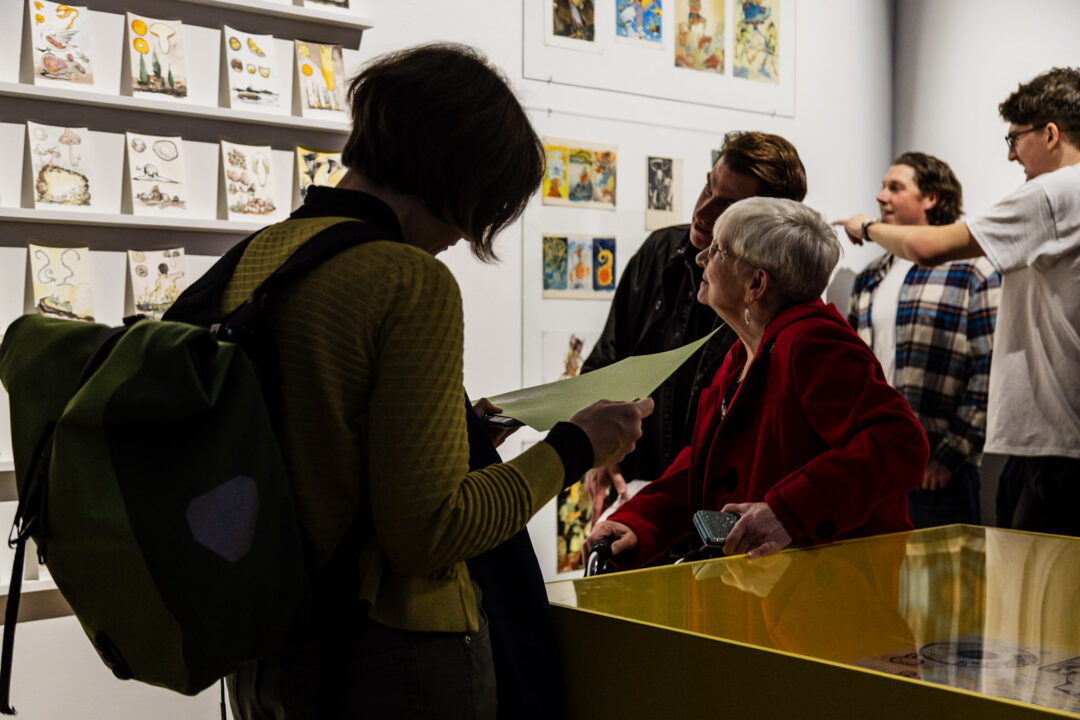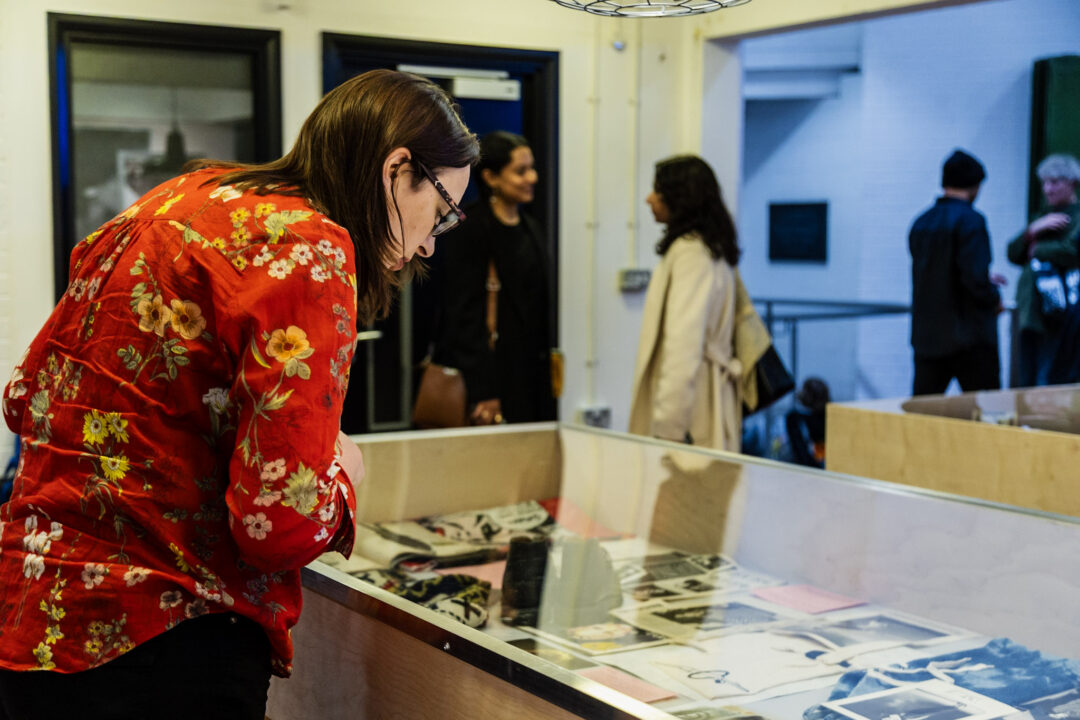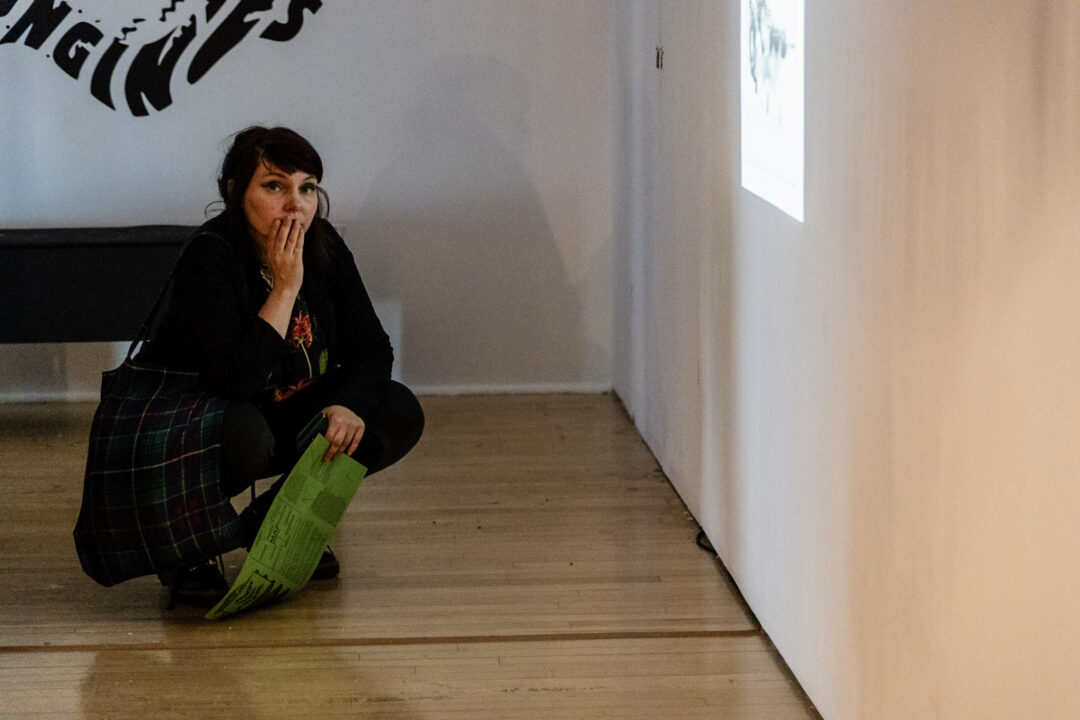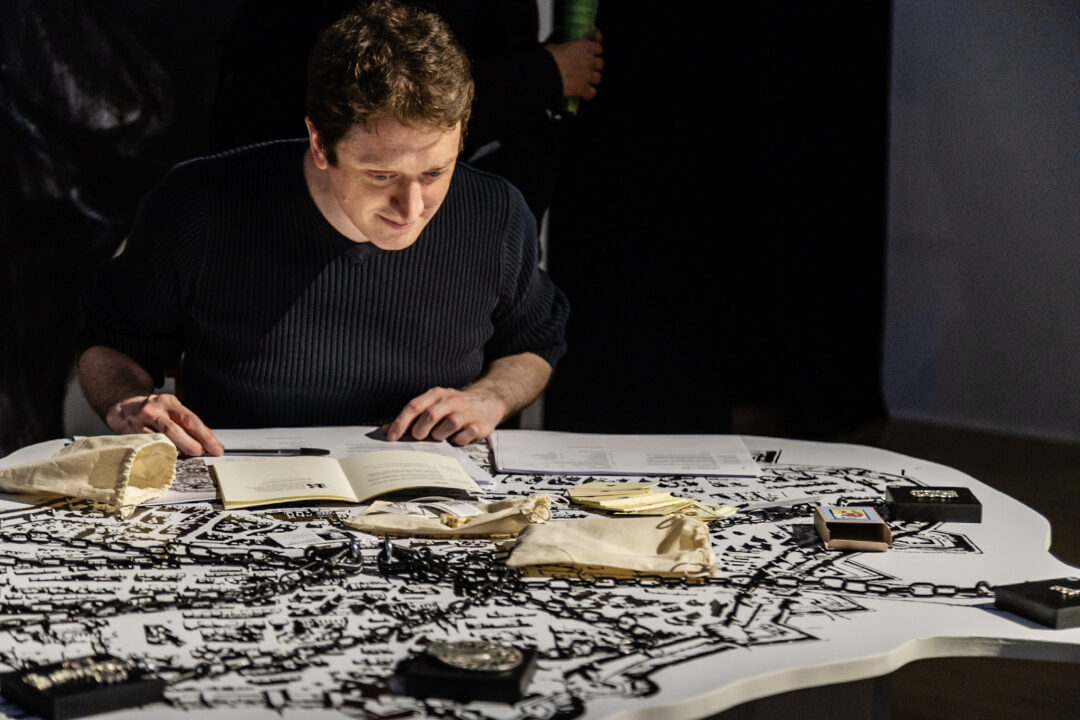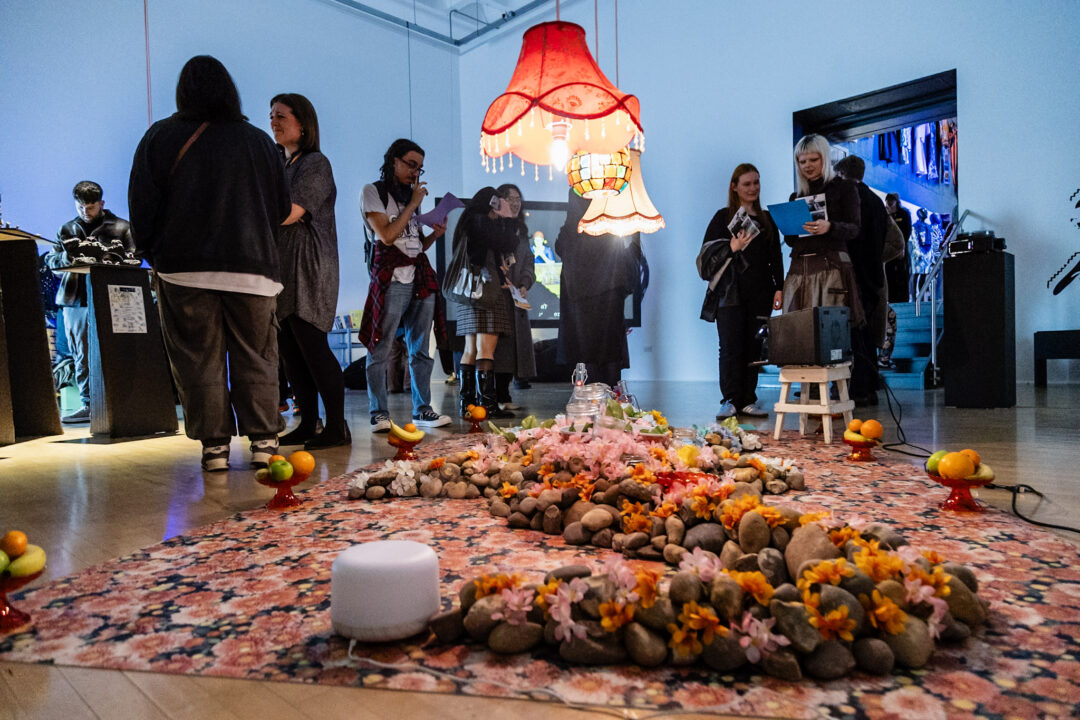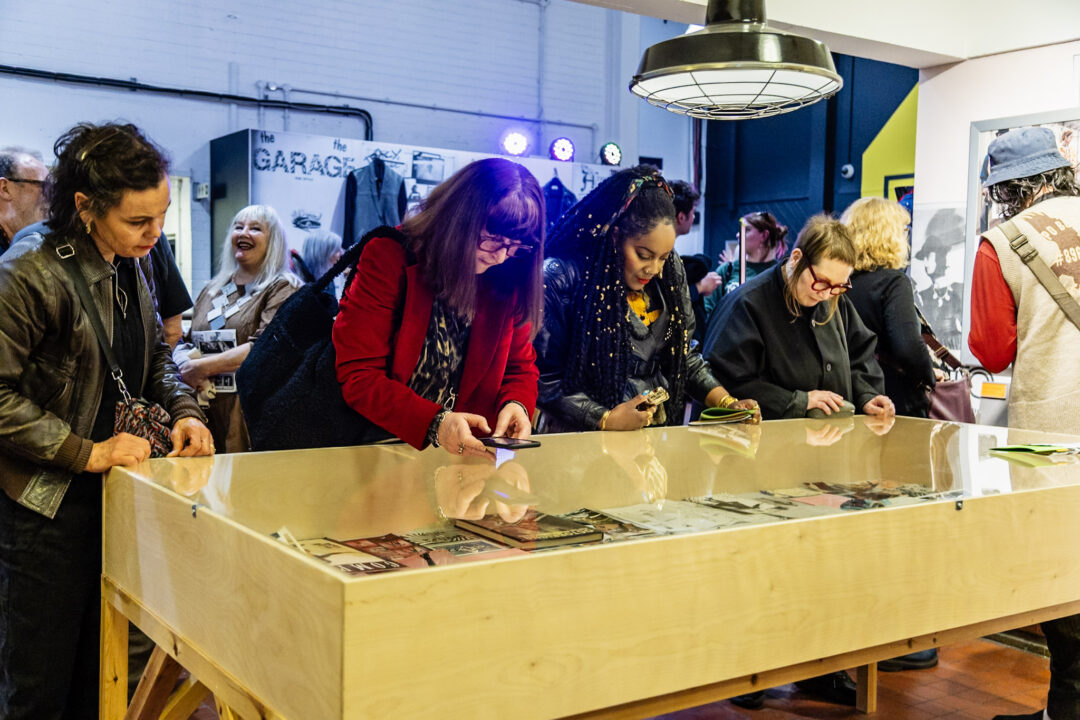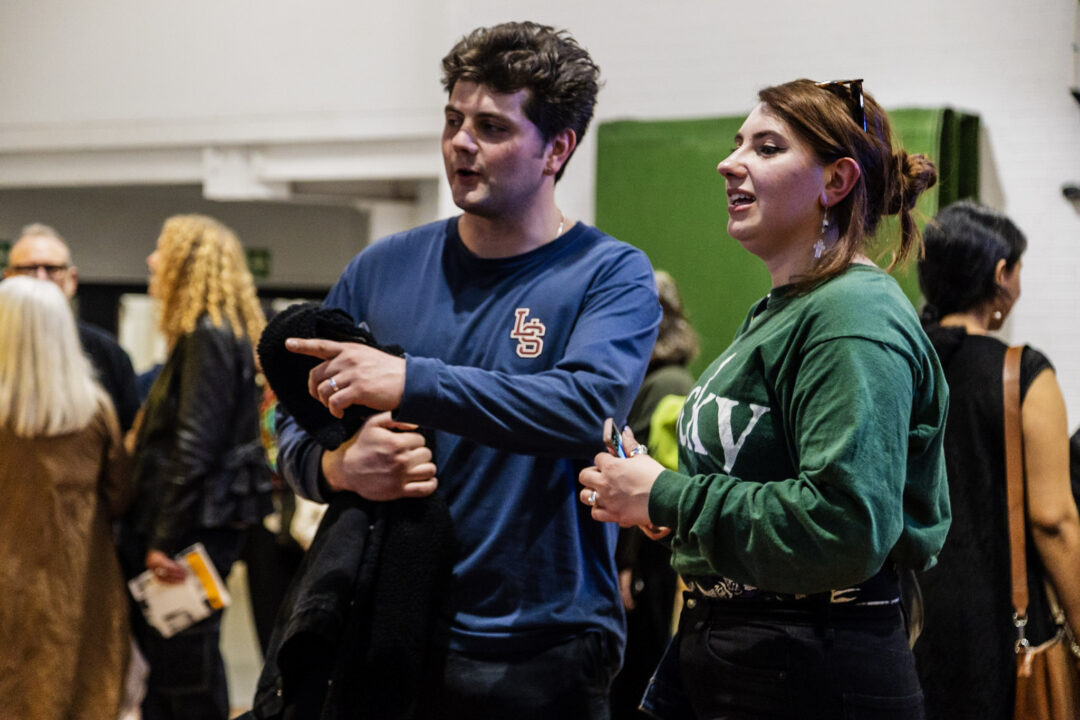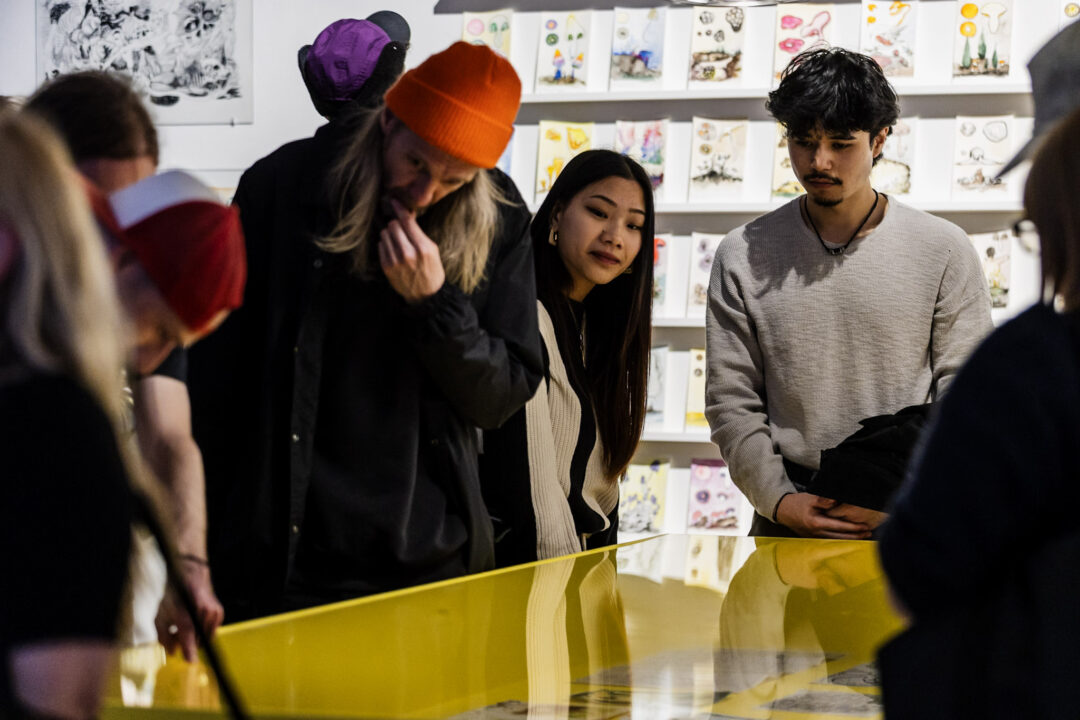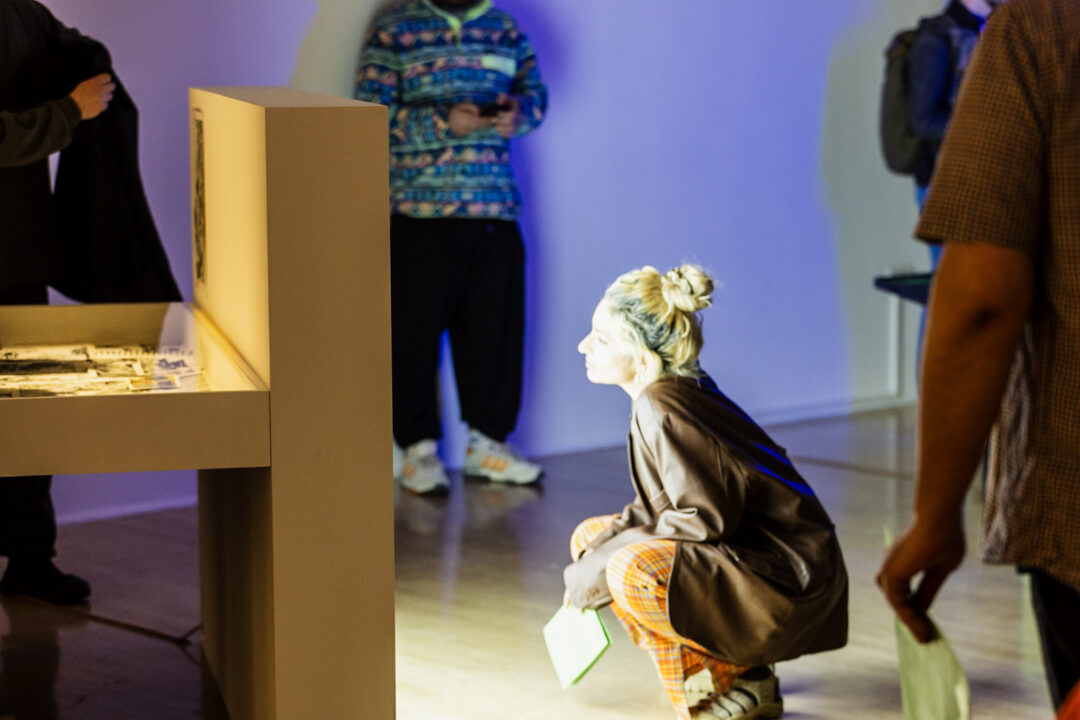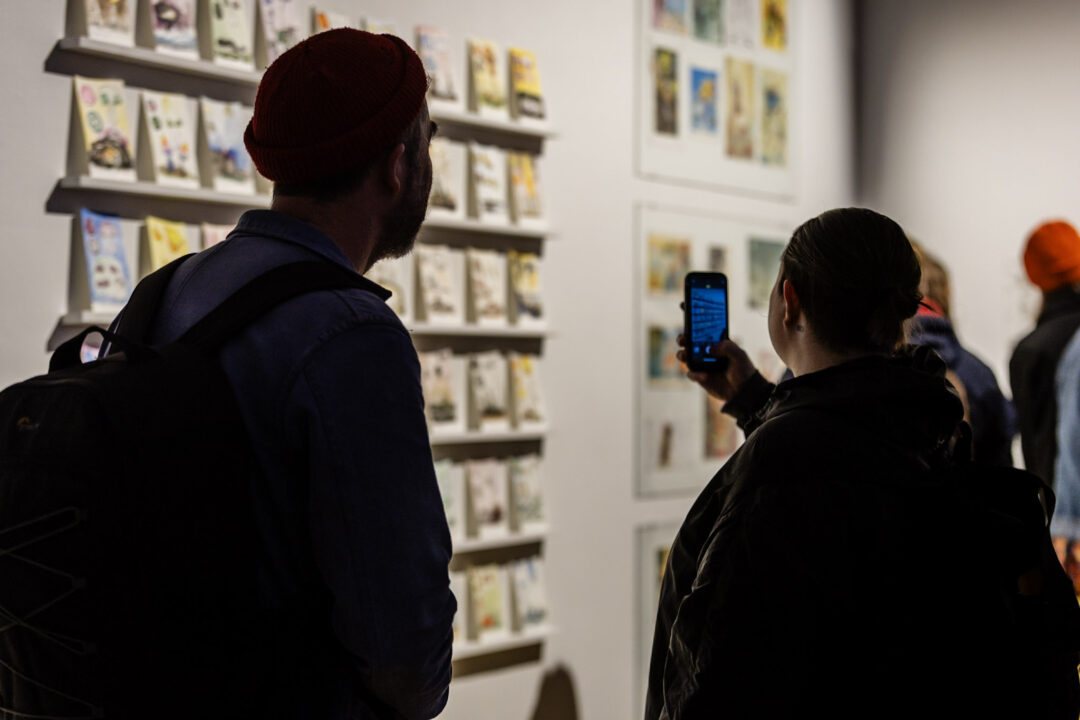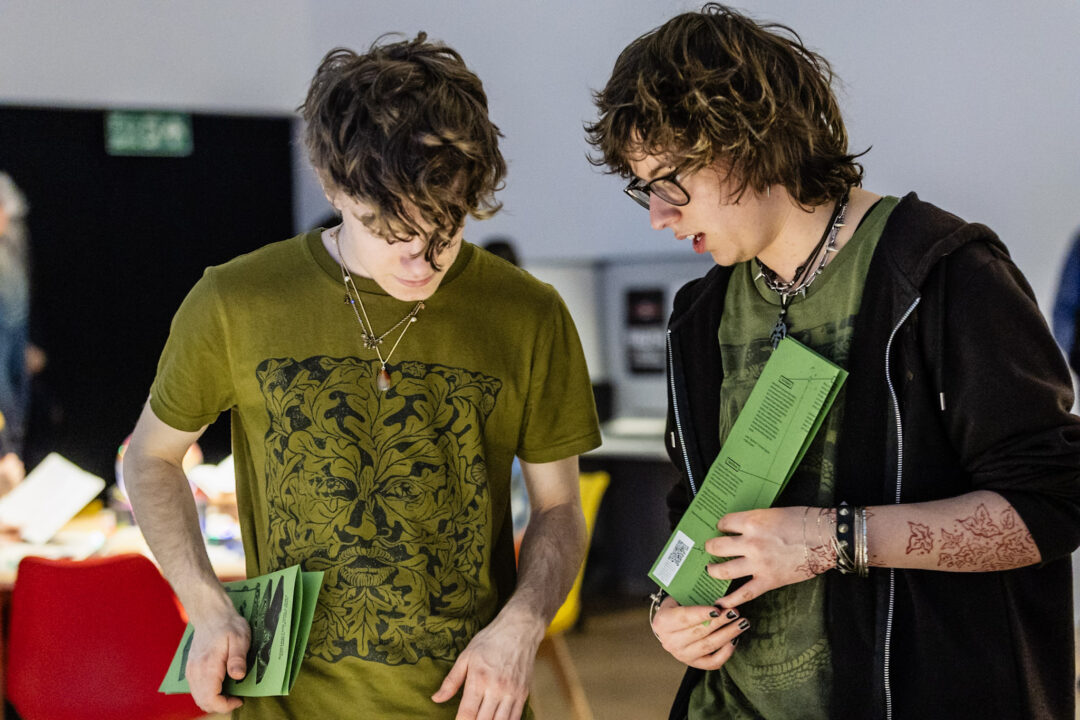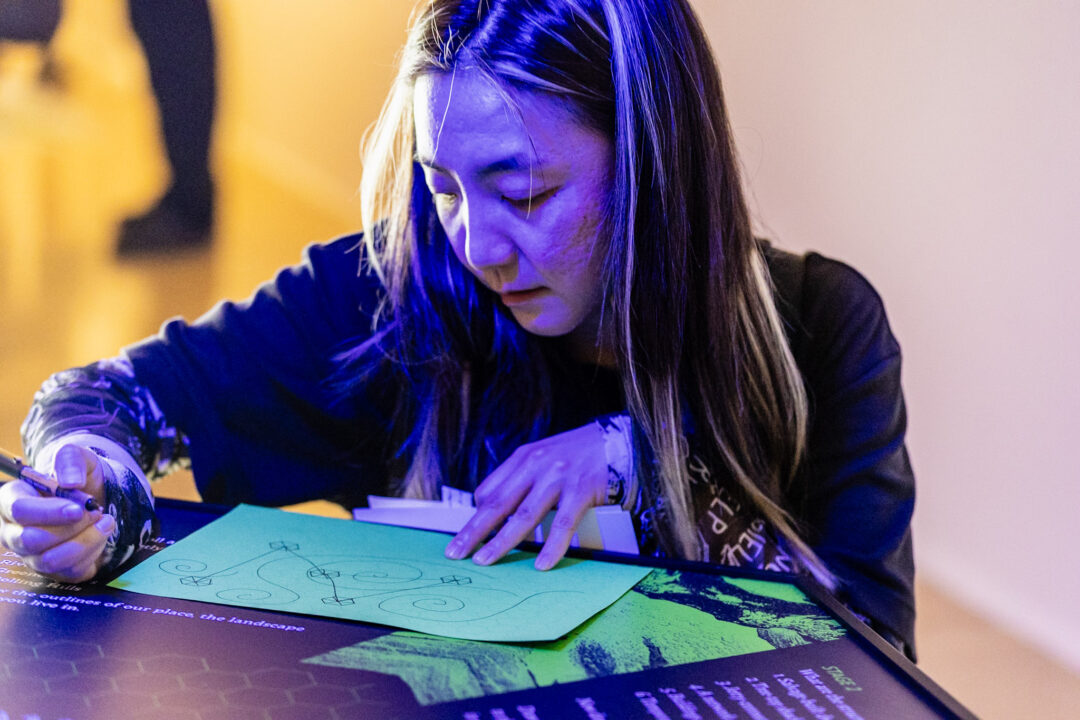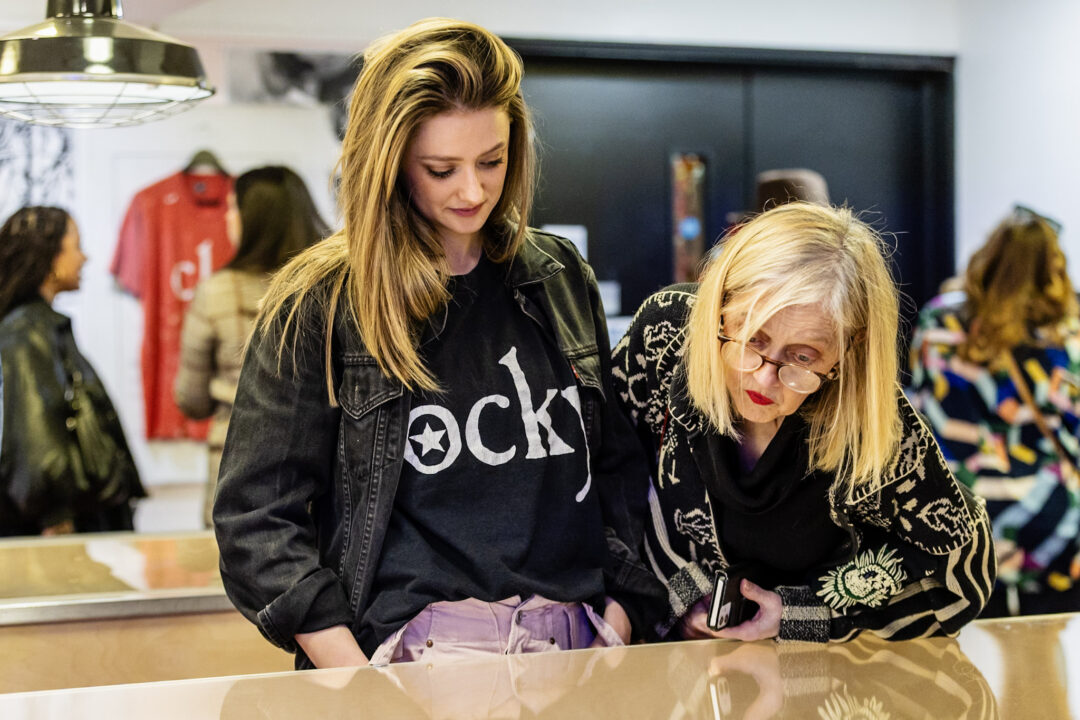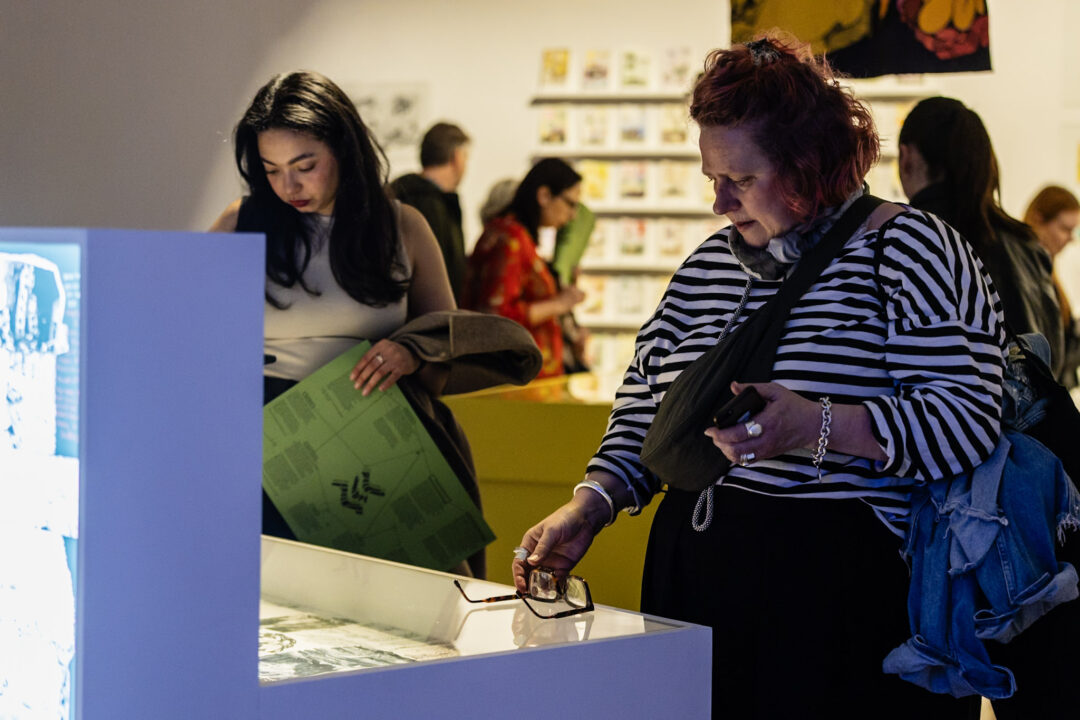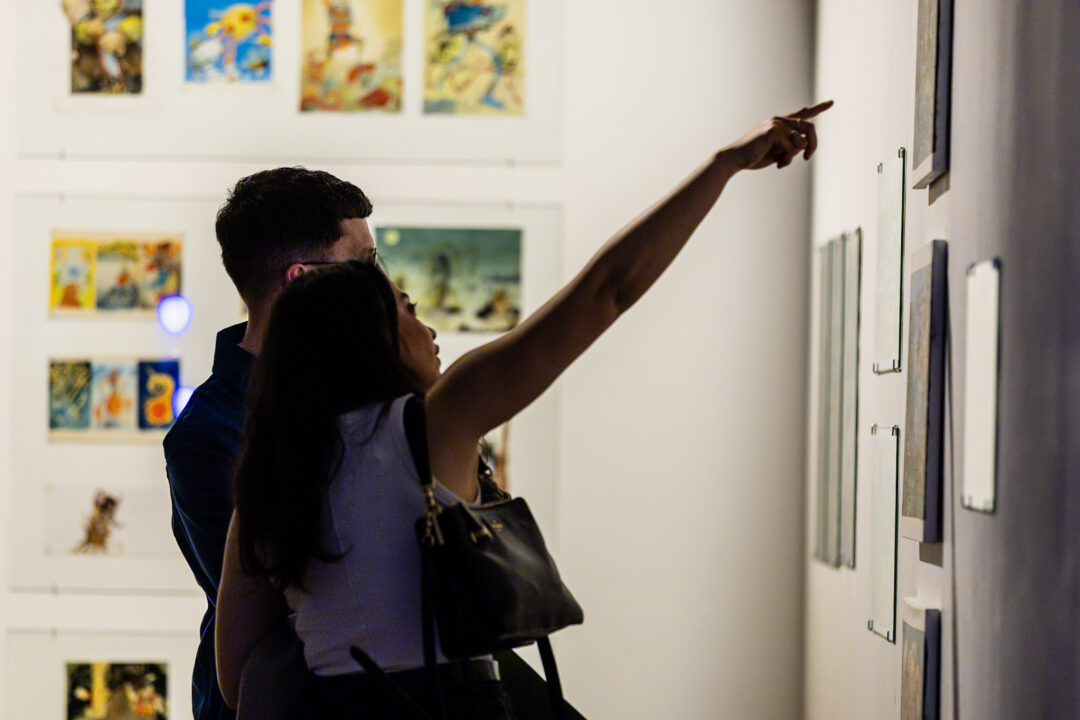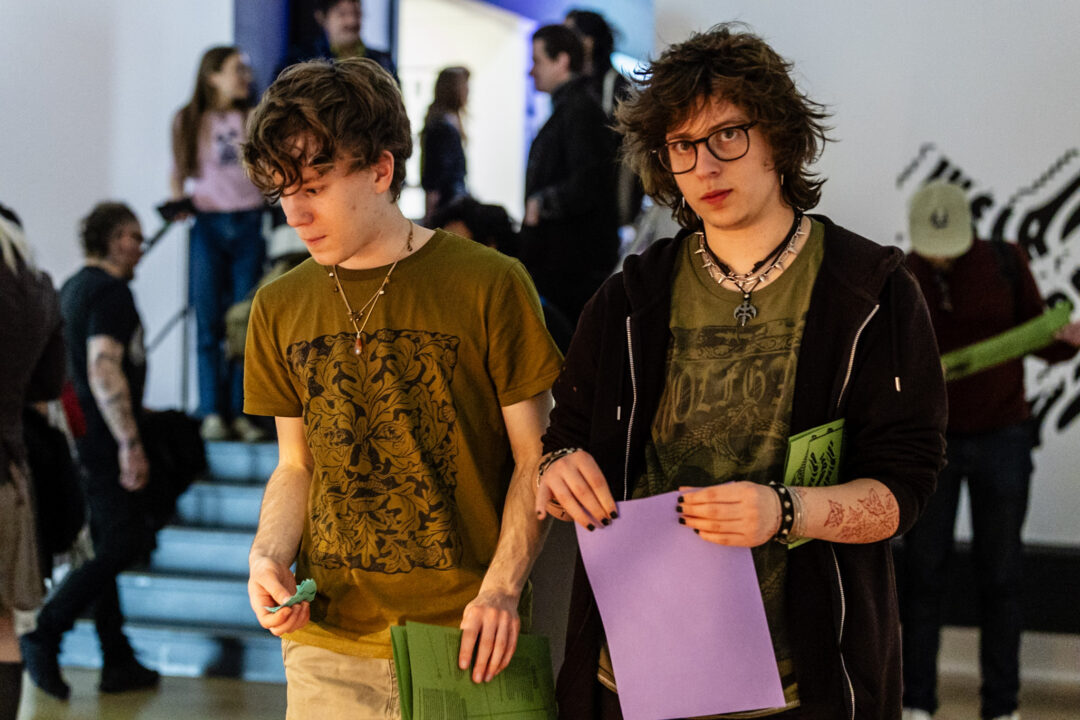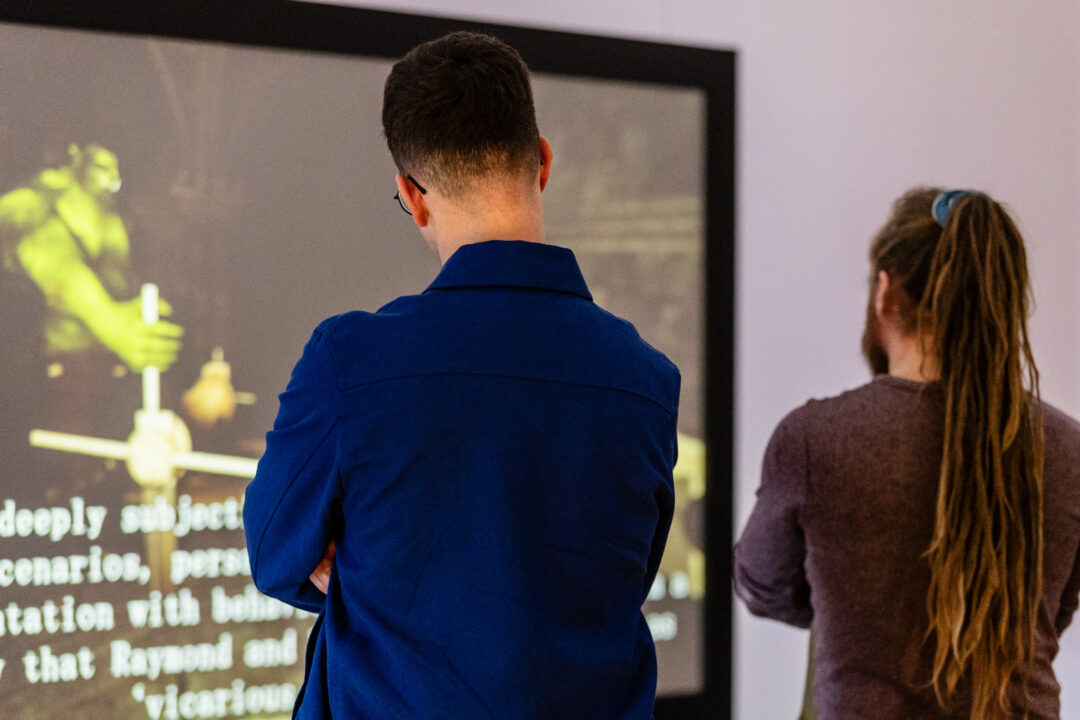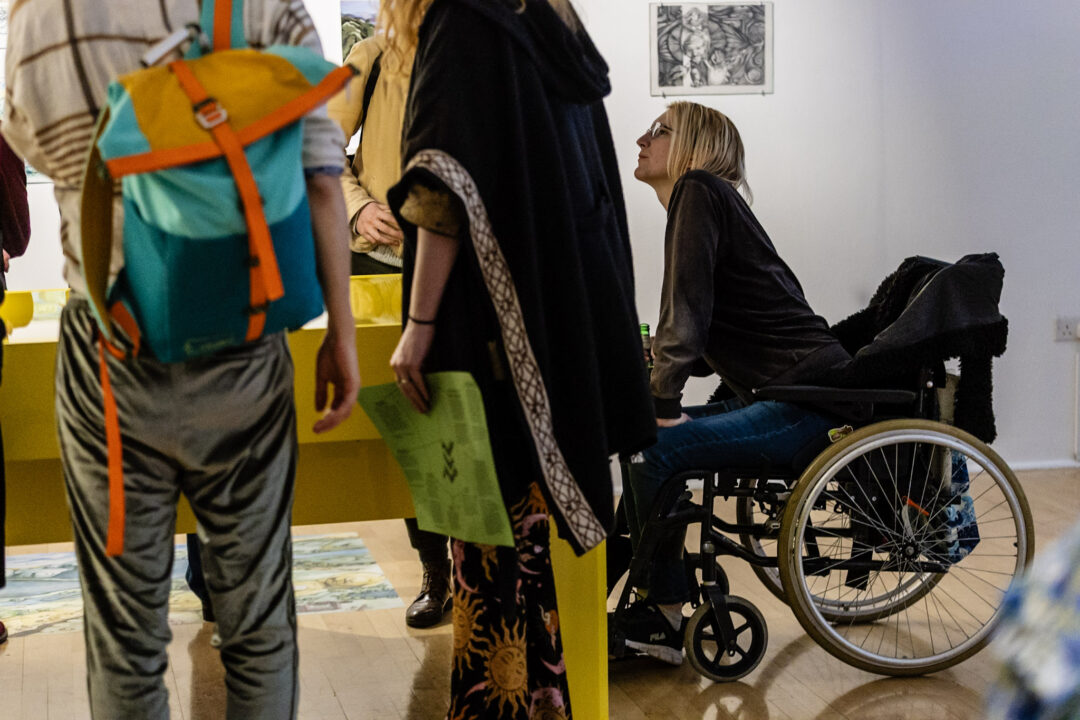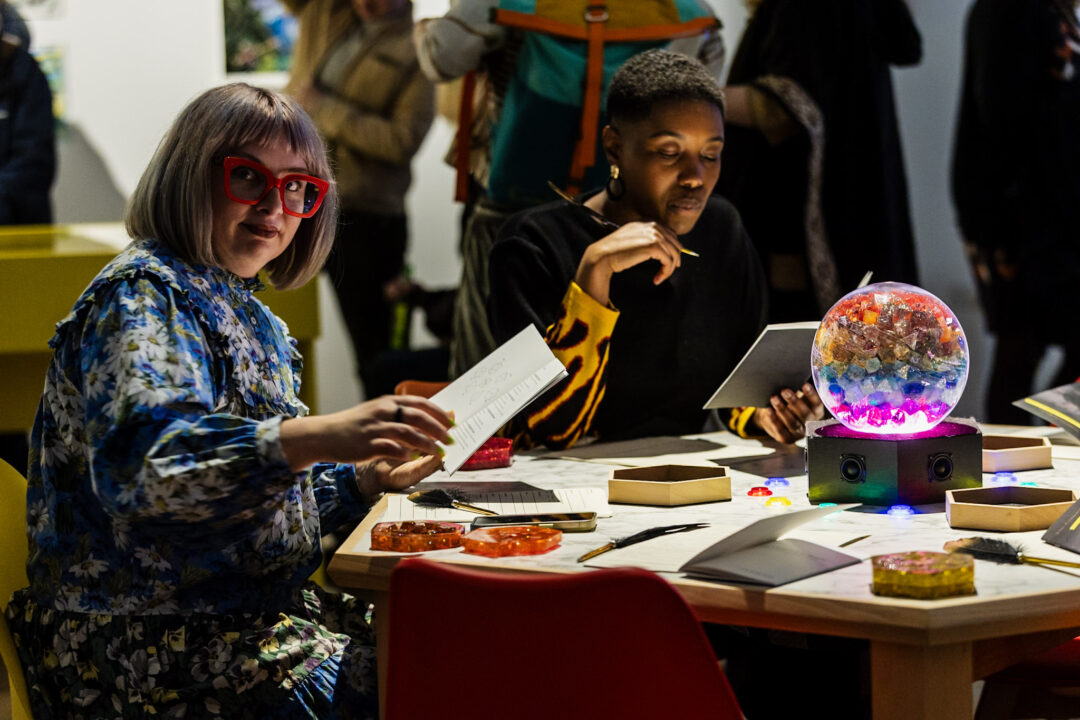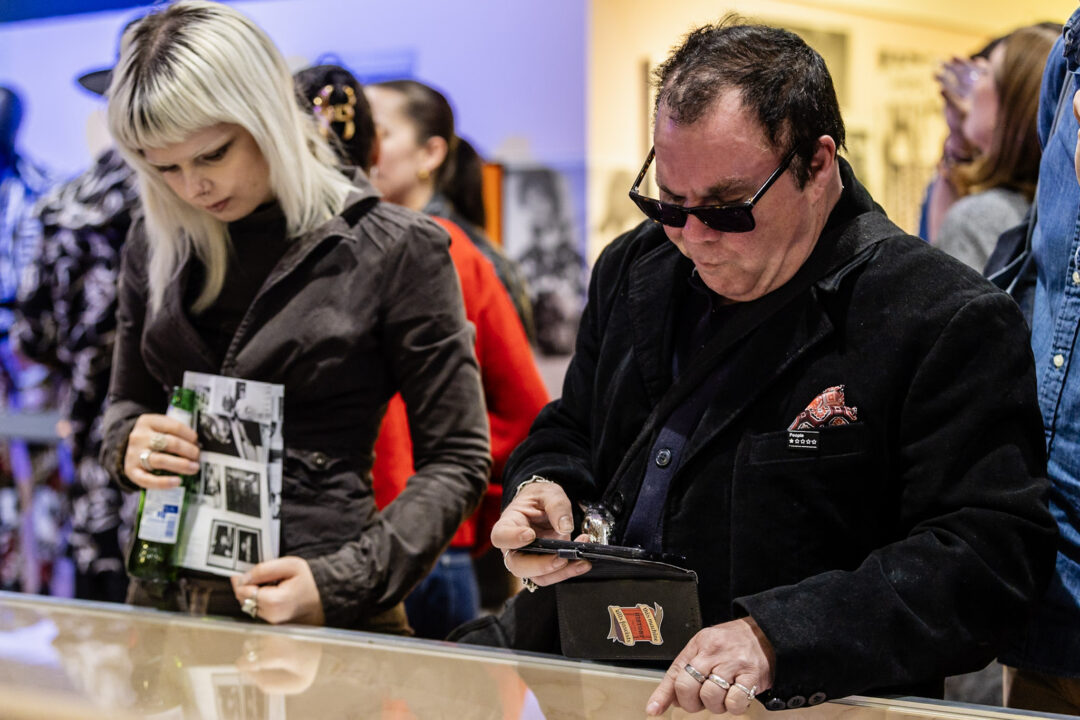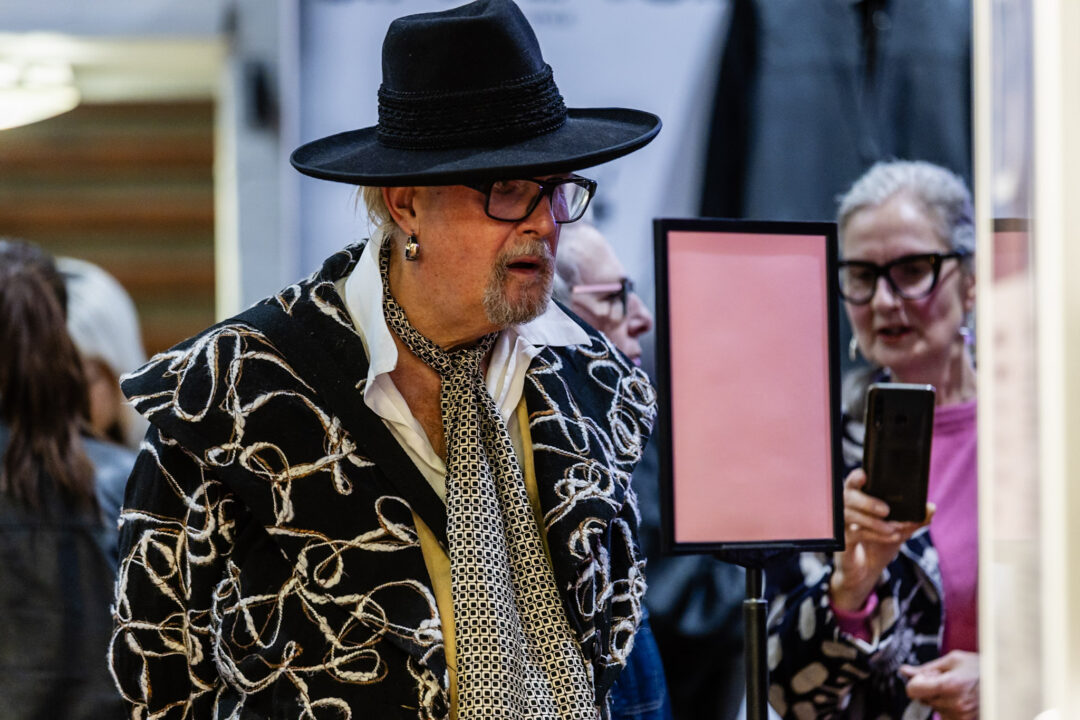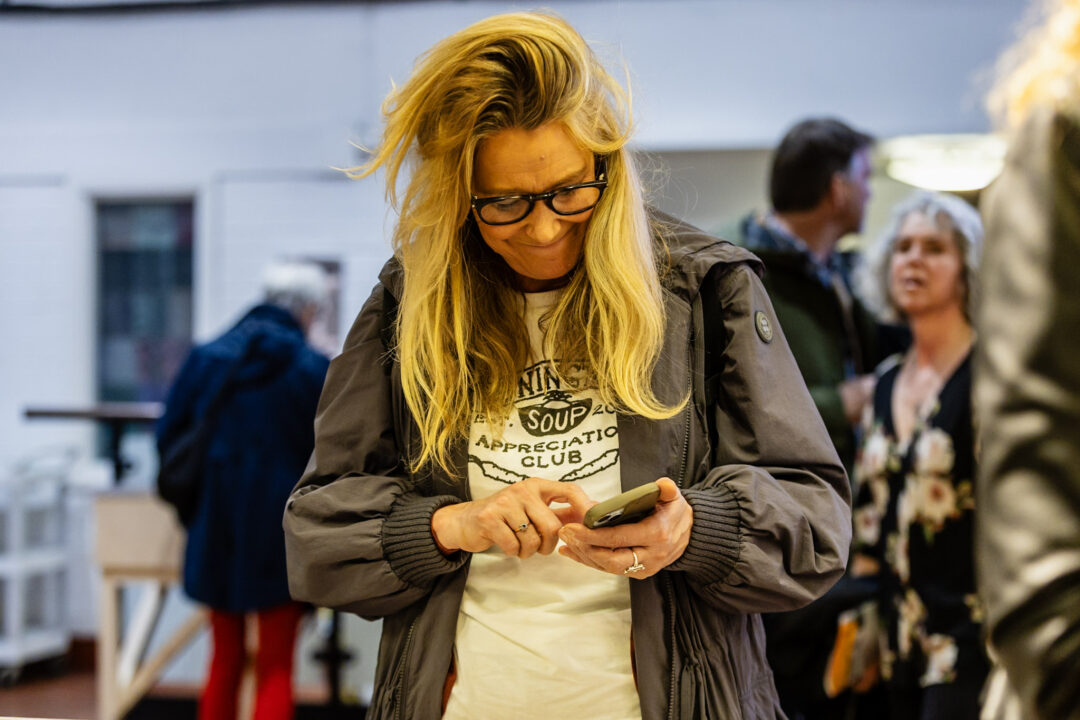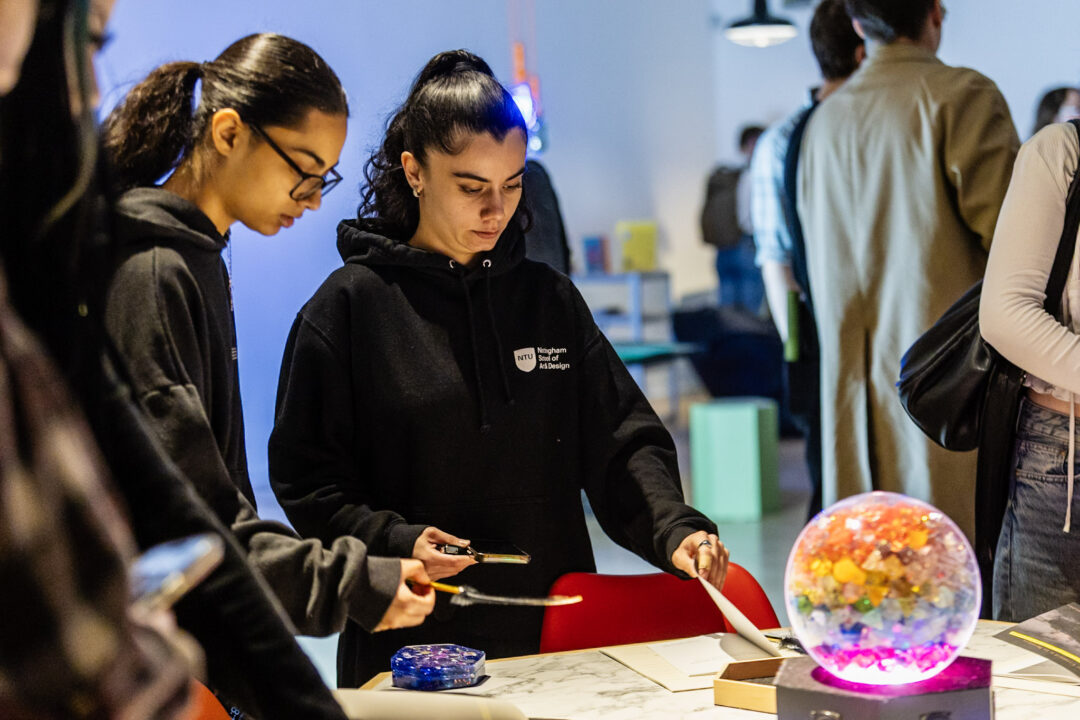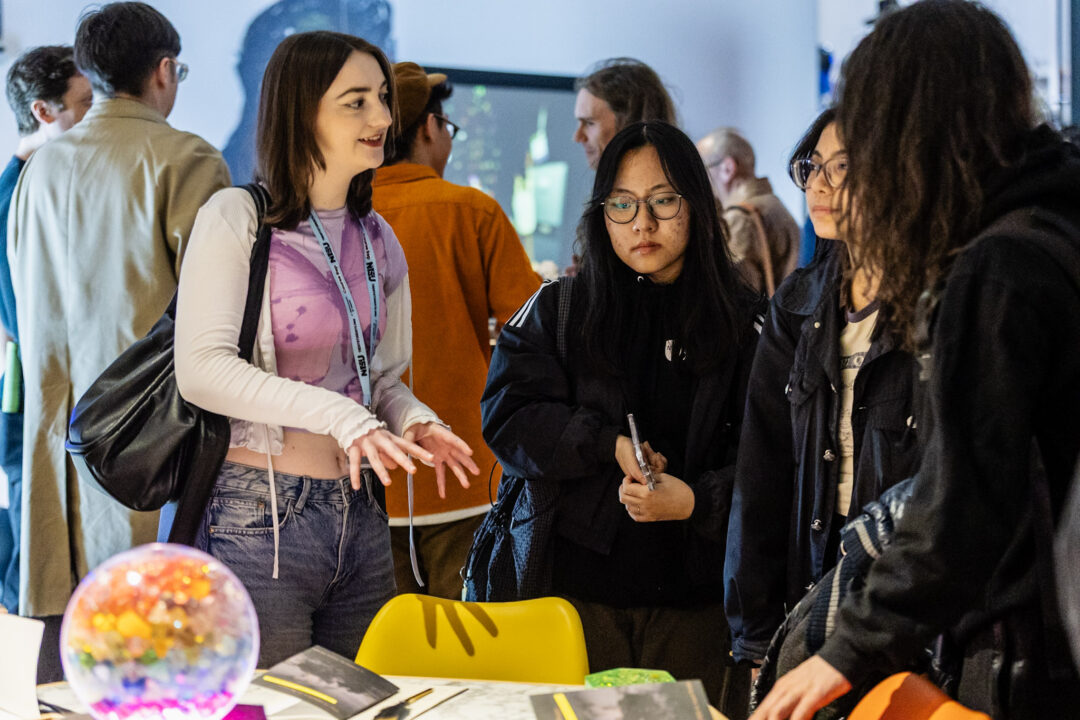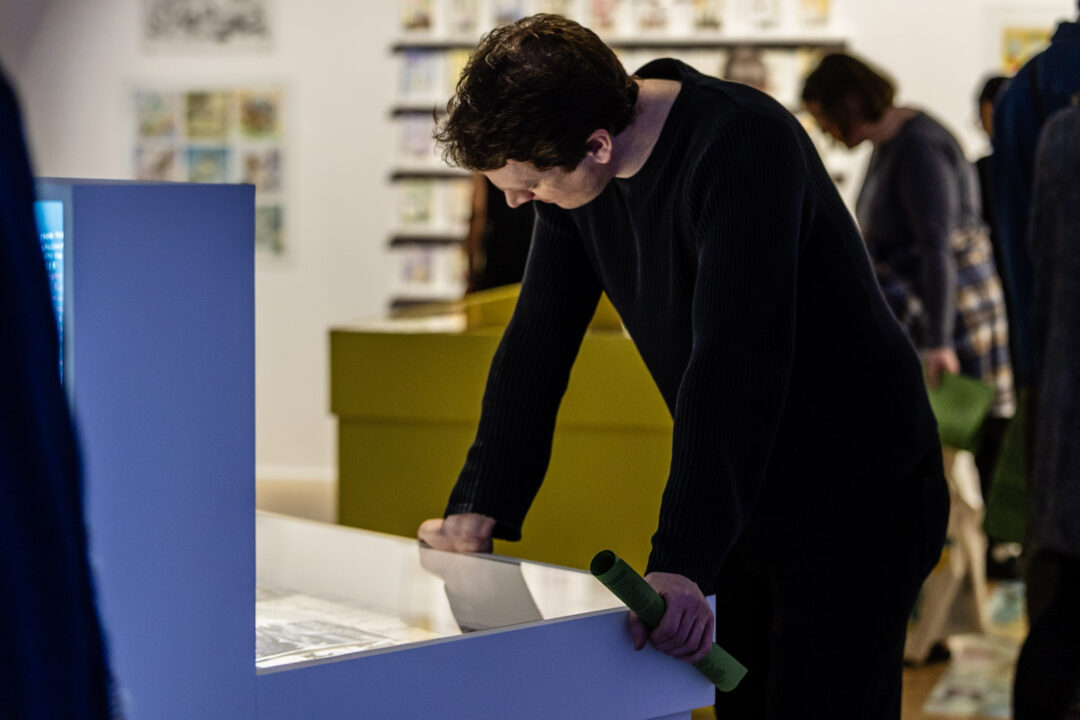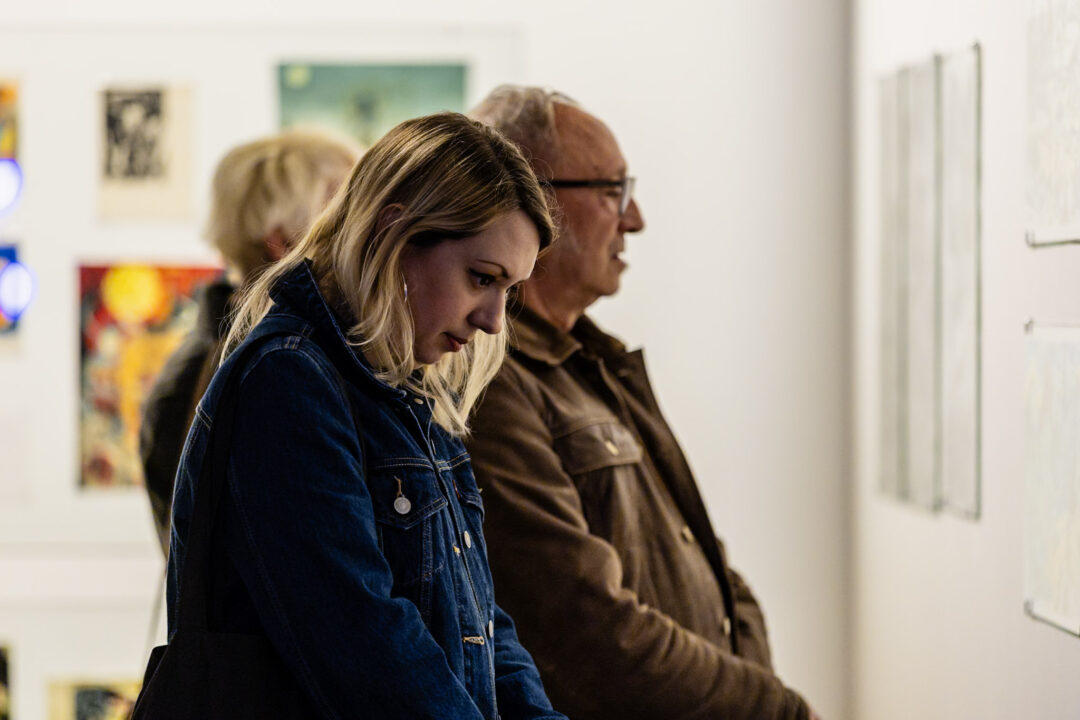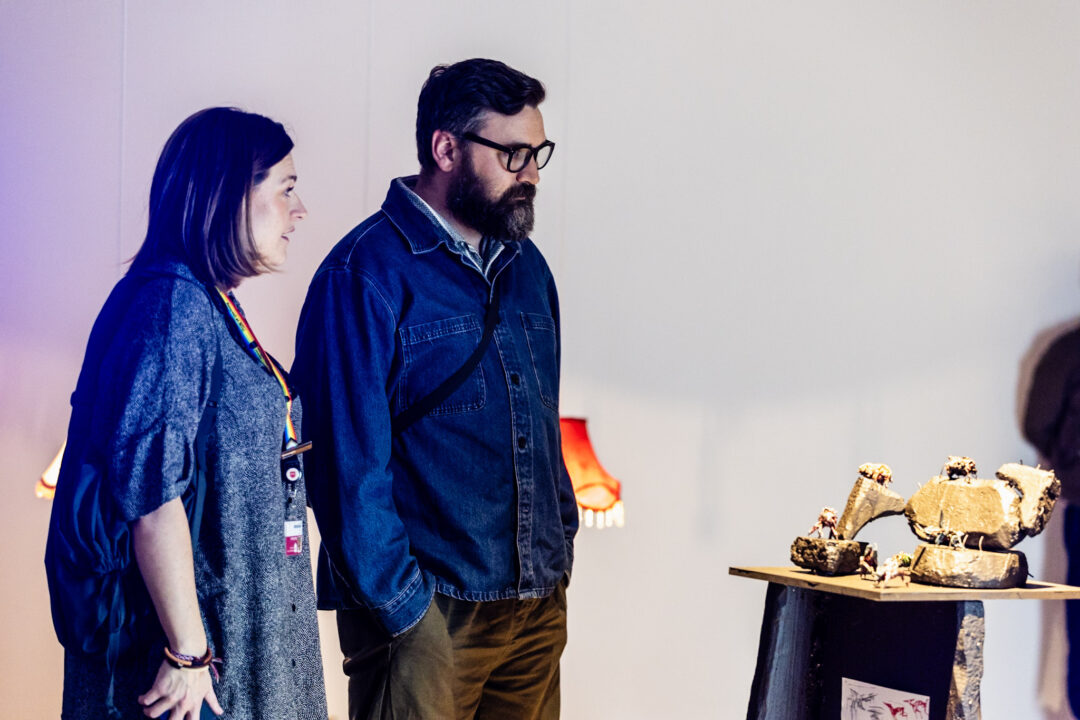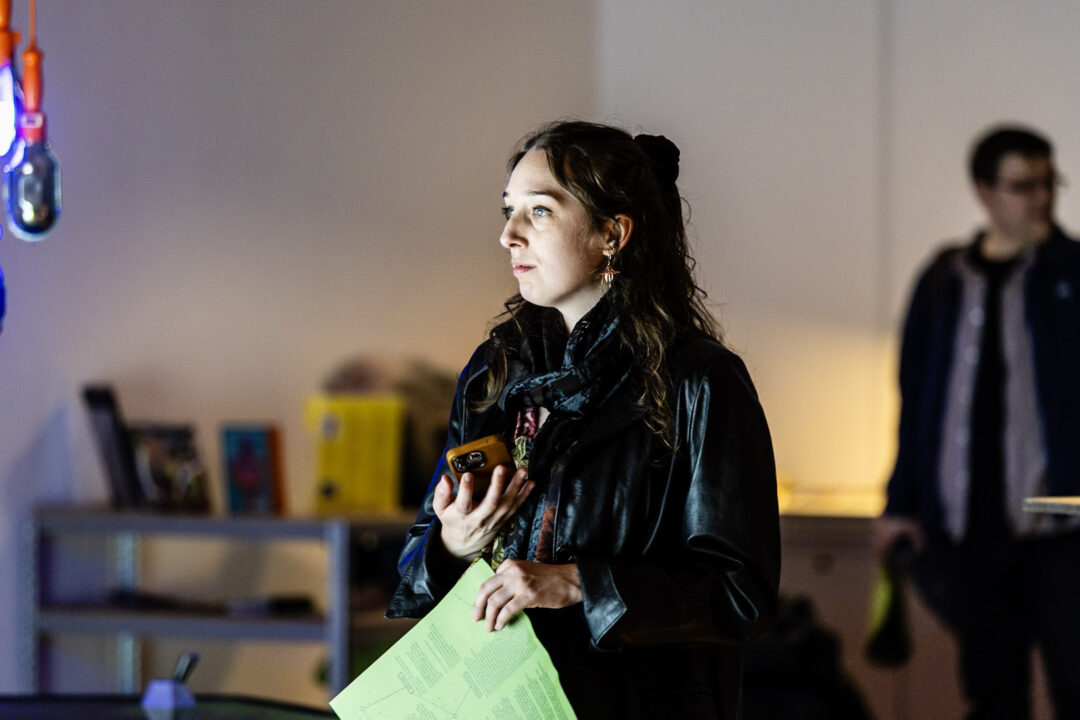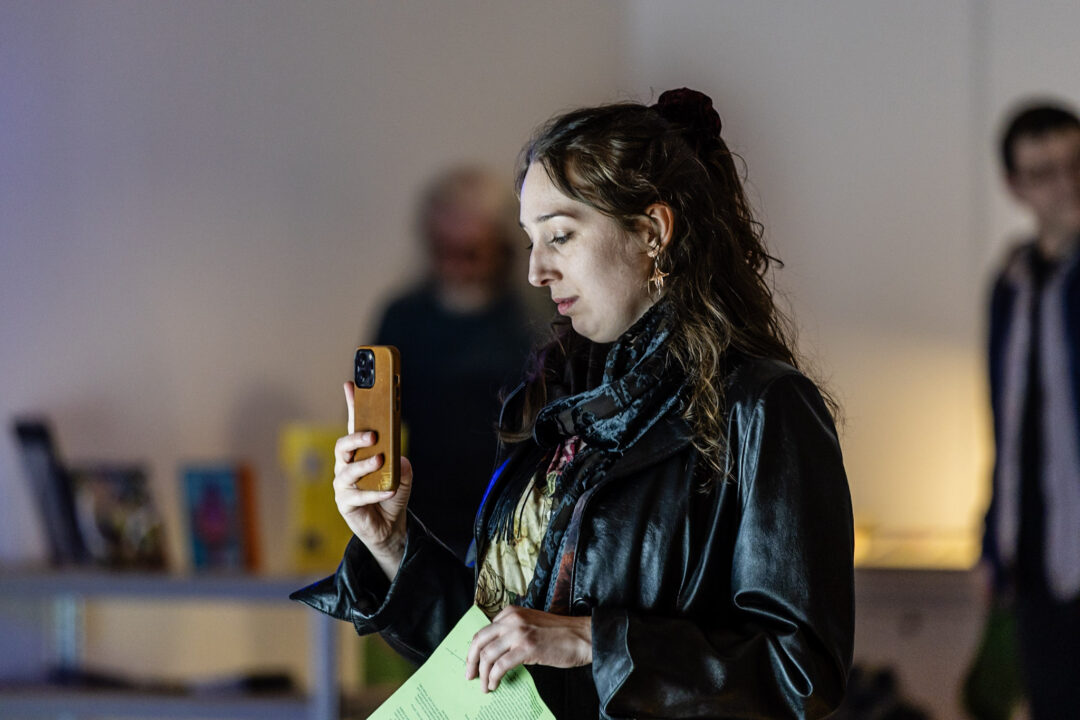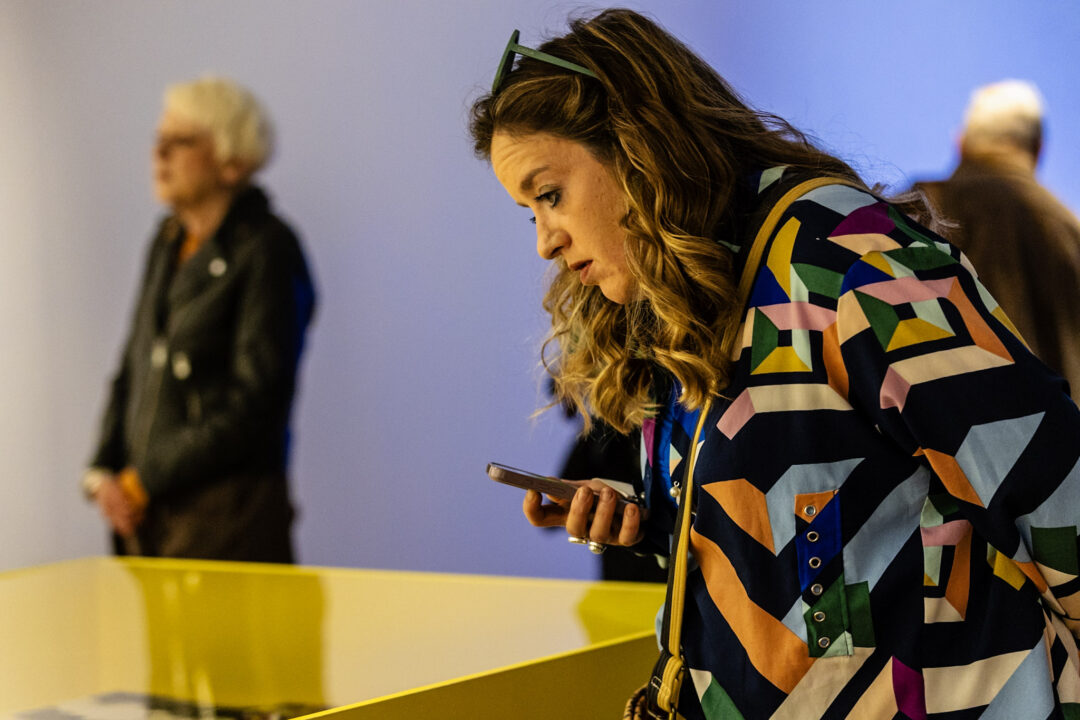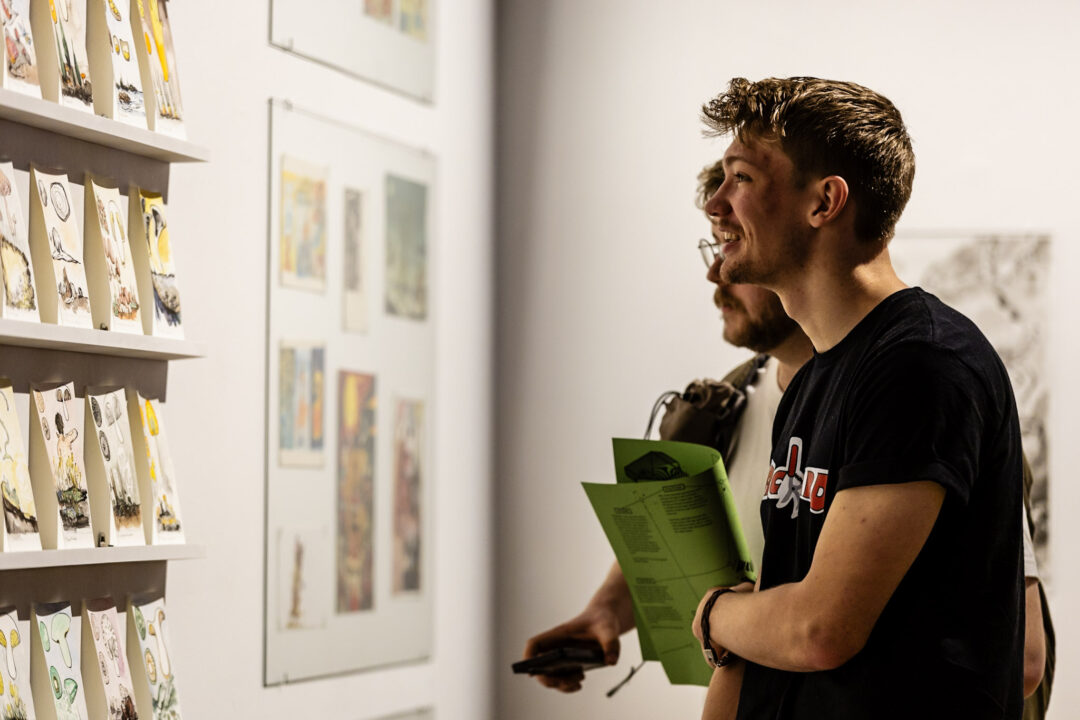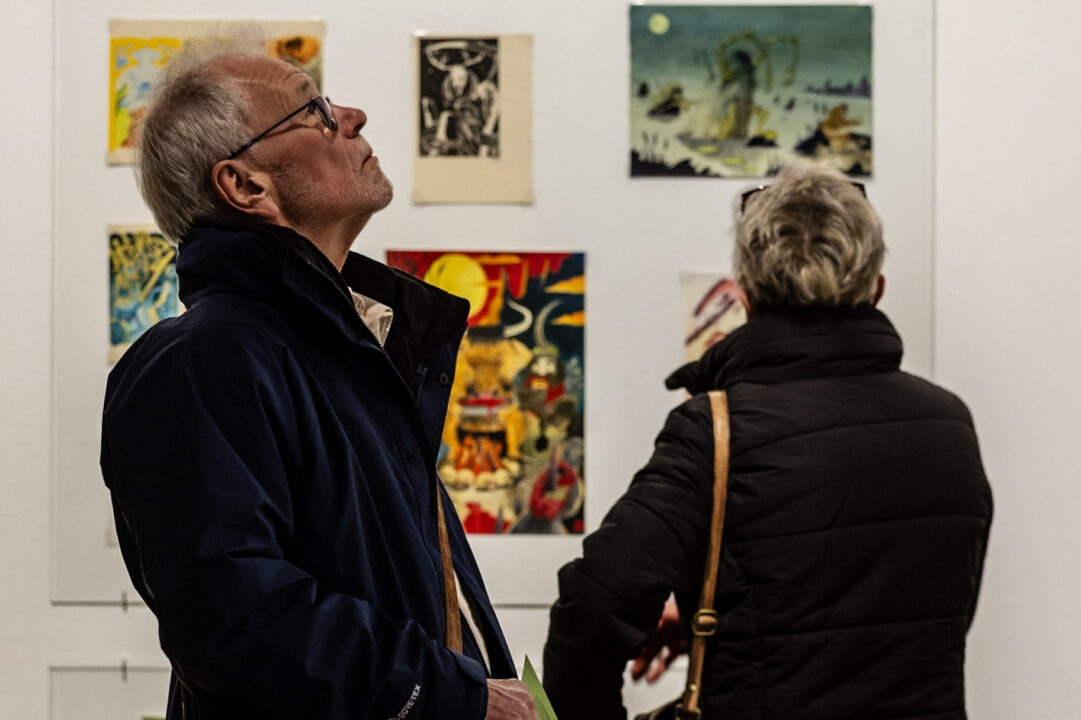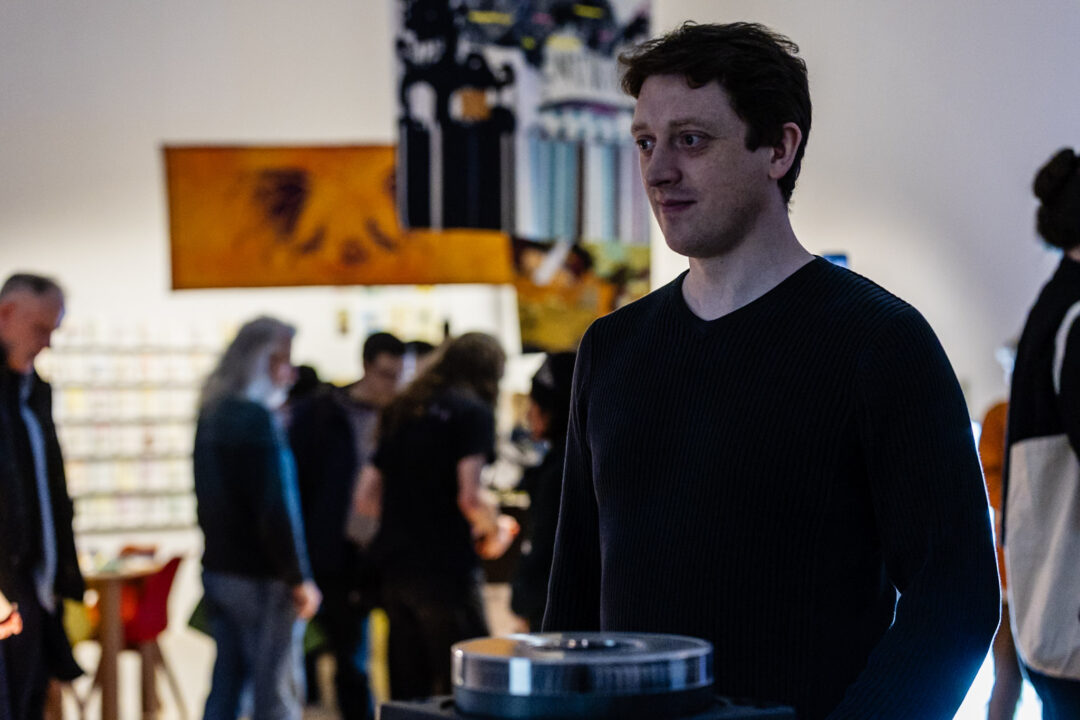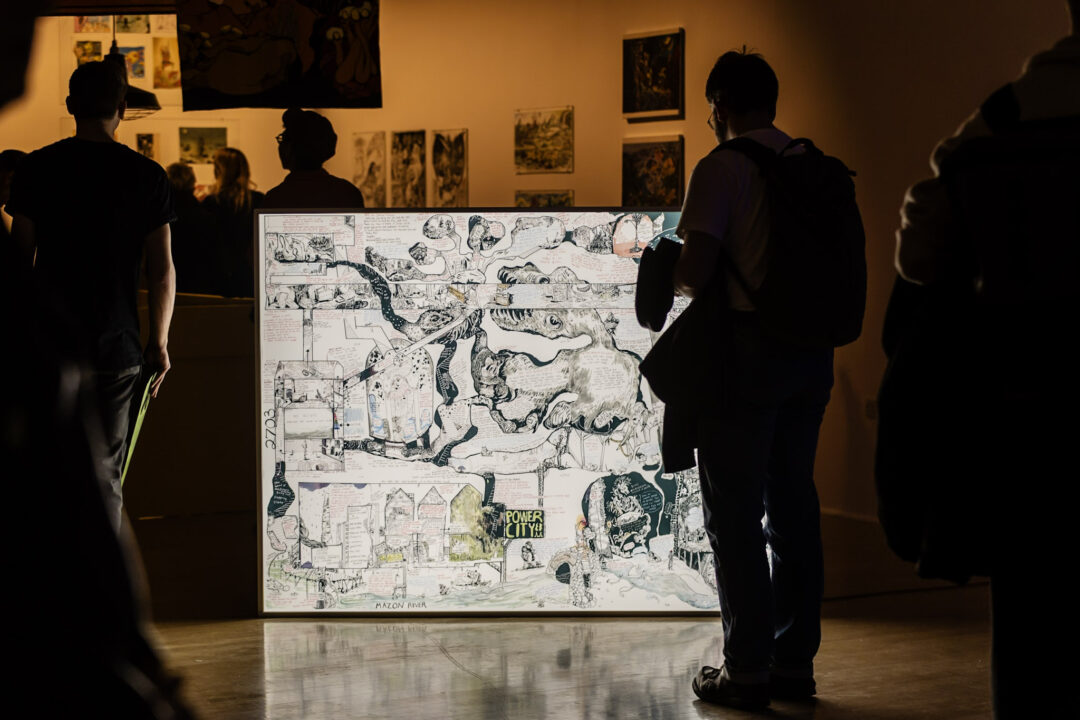Join us for a free one-day presentation of Al Andalus, an audio-visual installation by Nottingham artists Claude Money and Meg Wall.
Musically, the installation makes a globally influenced offering to the modern school of electronic, instrumental Hip-Hop with large helpings of modern British jazz, traditional Andalusian sounds and Arabic modalities.
Accompanying the music are Lo-Fi stop-frame animations, bringing still, multi-layered artworks to life. The visual inspiration for the work lies in key motifs, colours and iconography from Andalusian history and culture both ancient and modern, concepts inherent to the soul of the music itself.
The rhythms and visual dynamics within the animations were not automated but were responsive to the atmospheres created by the music.
Claude Money is a music producer based in Nottingham by way of Singapore and Spain. He has worked with a number of artists, including Chaka Khan, Taka Boom, Emily Makis, President T, Windowkid, and Snowy, and has also created bespoke pieces of music for television and film. Outside of music, he is a PhD researcher at Nottingham Trent University working on recovering the hidden histories of Nottingham’s rich Hip-Hop heritage, a critically overlooked area of UK art and culture.
Meg Wall is an academic at Nottingham Trent University where she lectures in visual communication techniques to undergraduate students. As a creative practitioner, she is an illustrator and animator whose art centres around telling human stories.
Join us for a discussion and audio experience with Nottingham rapper Cappo and collaborating sound artist Tom Harris, exploring the ideas and processes behind CAPStone, Cappo’s week-long exhibition at Bonington Gallery between 14 – 21 June.
For the third event in our Bonington Connects programme, we are delighted to invite Nottingham based rapper Cappo and sound artist Tom Harris to discuss their collaboration and explore the ideas behind Cappo’s solo exhibition CAPStone. The two artists will also lead an improvised sound workshop and experience – utilising spoken word and elements found within the exhibition.
Bonington Connects
Bonington Connects is a student-programmed talks, discussion and workshop series inviting people to engage in thought-provoking conversations in response to Bonington Gallery’s exhibition programme. Aimed at creating an accessible atmosphere, this series encourages exploration of our exhibitions in informal, open and engaging settings. This installment has been programmed and organised by final-year MFA Fine Art student Vidhi Jangra.
We are pleased to acknowledge that funds from NTU TILT have supported this event.
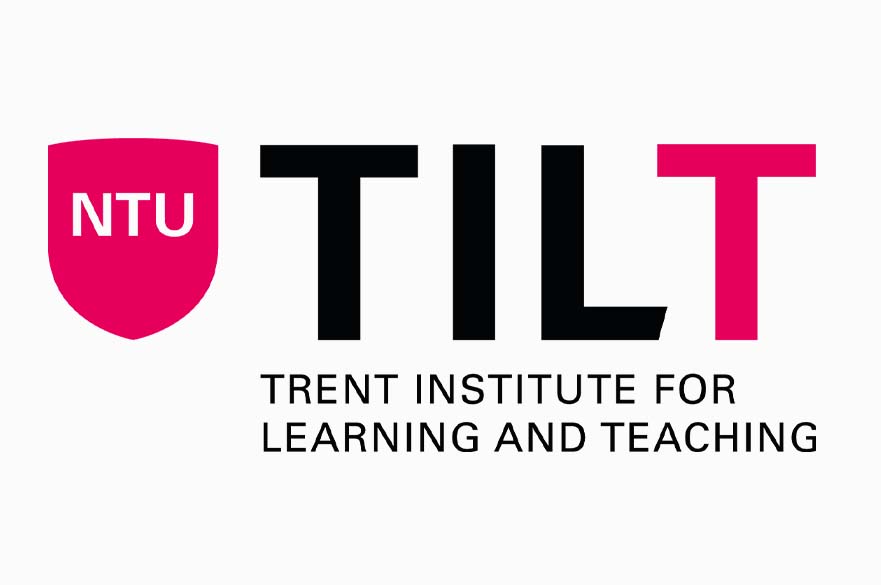
Bonington Gallery is delighted to host the culmination of this year’s CADALFEST (Celebrating Adivasi and Dalit Arts and Literature Festival).
After two successful festivals between 2022-24, at locations within the UK and India, this third instalment will culminate with a two-day programme of screenings, discussions, workshops and masterclasses at Bonington Gallery, offering audiences a closer, more sustained engagement with contributors than on previous occasions.
This new, more interactive format will allow audiences to work closely, and embark on a two-day journey, with the filmmaker Jayan K. Cherian, the writers and poets Gogu Shyamala and Jitendra Vasava, the writers and researchers Gopika Jadeja and Priteegandha Naik, as well as the Jangama Collective.
This year’s festival also celebrates the 10-year anniversary of the network on Dalit and Adivasi literature that was launched by the first conference on Dalit literature at Nottingham Trent University in June 2014.
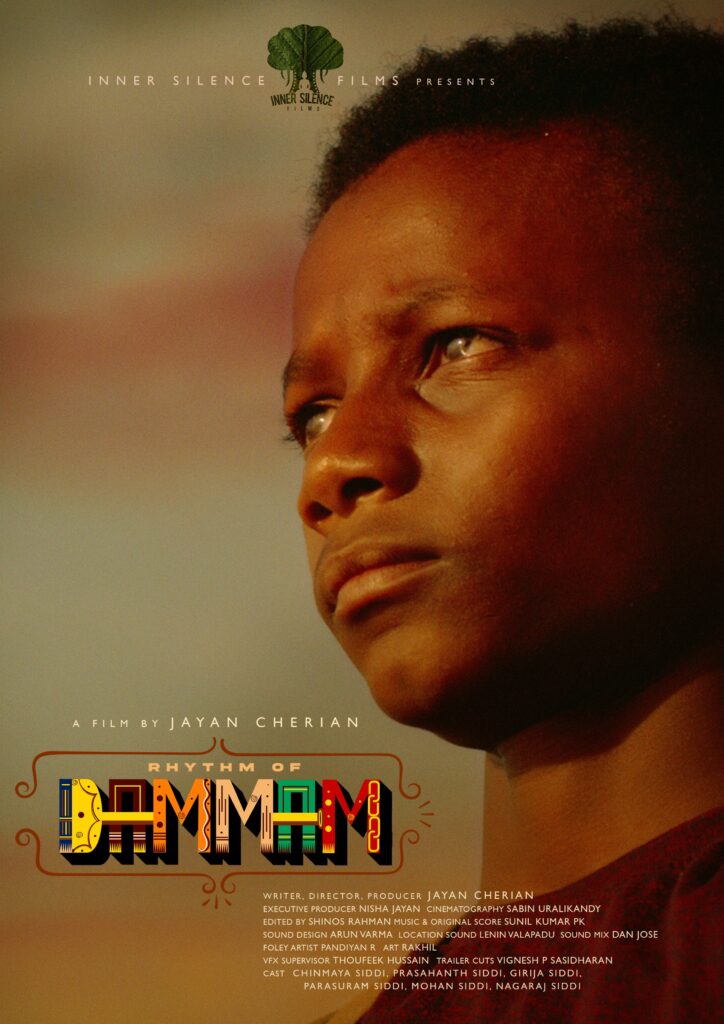
10 am – 12 pm: Gopika Jadeja and Jitendra Vasava, ‘Adivasi lives in forest, village, city’.
Jitendra Vasava and Gopika Jadeja have been working over the past decade to translate and publish Adivasi poetry from western India, including Vasava’s own poetry. Beginning with a song in celebration of the Earth, Vasava and Jadeja will weave through Vasava’s poetry in Dehwali Bhili and English translation, video footage of readings by other Adivasi poets and reflections on poetry, orality and Adivasi struggles.
1 – 3 pm: Screening of Rhythm of Dammam, a film by Jayan K. Cherian, followed by a discussion with the filmmaker.
In Uttara Kannada, India, Jayaram Siddi, a twelve-year-old boy, is believed to be possessed by the spirit of his late grandfather, Rama Bantu Siddi. Despite seeking help from local black magicians, Jayaram’s condition remains unchanged. He escapes into a dream world, using ‘magical’ instruments from his grandfather to connect with his ancestors. However, he becomes overwhelmed by the agonizing history of his ancestors’ chattel slavery, losing touch with reality. Jayaram drops out of school, and his family strives to restore his balance by embracing tribal rituals and Dammam music, both vital to their cultural heritage. The film delves into Jayaram’s struggle with intergenerational trauma, emphasizing the challenges faced by him and his family in finding healing and stability.
Rhythm of Dammam is a groundbreaking production that brings to light the little-known Siddi community of India, also known as the Sheedi or Habshi, who primarily reside in regions like Karnataka, Gujarat, and Hyderabad in Telangana. The Siddi people trace their ancestry to the Bantu people from Southeast Africa, who were enslaved by Portuguese traders and brought to the Indian subcontinent between 1530 and 1740. While slavery was declared illegal in British India by 1835 (and continued until 1865 in Portuguese-controlled Goa), the Siddi people endured a different form of bondage within India’s complex caste system after abolition.
Despite some progress in Indian society, the Siddi community continues to experience discrimination and marginalization, limiting their social and economic mobility due to their position within the caste hierarchy. Nevertheless, the Siddi people have shown remarkable resilience in preserving their unique cultural identity. They have achieved this by maintaining their ancestral customs while incorporating elements of Indian culture, particularly traditional Dammam music and tribal rituals. The journey of the Siddi people—from enslavement to current caste-based challenges—is a moving tale of determination and survival. It highlights the enduring impact of societal oppression while showcasing the strength of cultural heritage and community solidarity. The film Rhythm of Dammam offers a fresh perspective on the complex dynamics of caste, race, and identity in contemporary Indian society. It encourages viewers to question their preconceptions and biases while acknowledging the resilience of the human spirit in its pursuit of dignity and freedom.
3:30 – 5:30 pm: Masterclass with Jayan K. Cherian.
In this interactive masterclass, Jayan K. Cherian will focus on the logistics of independent filmmaking in a remote village setting—navigating limited infrastructure, working with non-professional actors, and building a creative process rooted in mutual trust. He will also share insights from his experience living and working with the Siddi community—how they prepared documentary subjects to step into fictional roles and developed the screenplay through oral histories, local legends, and the mythologies shared by elders. These became the foundation for a story that reflects the community’s collective memory, while also raising questions about who gets to represent whom, and how (the politics of representation in cinema).
10 am – 12:30 pm: Priteegandha Naik’s workshop ‘Reclaiming Tomorrows: Liberation through Dalit Futurism’.
This workshop aims to re-imagine and rewrite the intended telos of the caste system as envisioned by Vinayak Damodar Savarkar. It will employ speculative fiction to resist, challenge, and create anti-caste futures. The workshop uses Dalit futurism as a toolkit to build blueprints of tomorrows and bring them to life. It will use Dalit futurism to critique, dream, and create new narratives of hopeful and collaborative futures.
1:30 – 3:30 pm: Gogu Shyamala’s presentation ‘Pain resonates in speculative fiction’ and conversation with Priteegandha Naik, chaired by Basma Mahfoud-Vandermeersh.
In this presentation with poems, songs and stories, Gogu Shyamala will engage in a dialogue with the writings by Dalit women who unveil mundane lived and shared experiences of those who are located at the lowest strata of society and whose lives are coloured by divisions of class, caste and gender. The context of this intersectional oppression of Dalit women is a civil society that is fragmented by religion, while caste compartmentalises India into 3000 fragments and about 25,000 subdivisions. Unlike religion, the division among castes is invisible but firmly in place. This systematic division, called the ‘Caste System’, is premised on codification of the five-fold varna system. This codification subscribes to an ideology of divisions in a hierarchy akin to a vertical ladder, naturalising and internalising the idea of purity and pollution of castes by religion, effecting untouchability and inhumanity. All top four varnas thereby humiliate the last varna in terms of the economy, ethnicity, culture and assertion.
Gogu Shyamala will discuss how the form of speculative fiction is well suited to explore all these caste contradictions and dichotomies in order to create anti-caste literature and the history of contemporary conditions. She will draw on poems and songs as well as her recently published short story, “The Phantom Ladder” (in translation from Telugu by Divya Kalavala), in The Blaft Book of Anti-Caste SF by BLAFT Publications.
4 – 6 pm: Jangama Collective, represented by Lakshmana K P and Mohit Kaycee, screening of the play DaklaKatha DeviKavya, followed by a discussion with Lakshmana K P and Mohit Kaycee.
Daklakatha Devikavya is an experimental play drawing on the epic poetry and stories of the important Kannada writer and founder-member of the Dalit Sangharsha Samiti, K.B. Siddaiah. This experimental piece begins with a re- reading of a cosmogonic myth from a community that is oppressed even amongst the oppressed narrating the origins of the world and of life on it. The play progresses through weaving and unravelling untouchable rituals, beliefs, hunger and desires through song and storytelling. For untouchable communities nudi (speech, sound, voice, and word) is like breath that cannot be separated from the body. The play uses instruments such as the areye and tamte as vines of nudi that enmesh the narrative and sprout new directions from within. Thereby opening up the untouchable world as a world of deep sonic imprints. In a context such as this, the play confronts what happens when the ‘written word’ that has so far been unreachable collides with and becomes an organ of the untouchable body, giving rise to a new relationship of intimacy and struggle. The play provokes an exploration of how the received insights through the experience of untouchability and the ‘written word’ force us to confront what it means to be human in the depths of our being.
Jayan Cherian, from Kerala, holds an MFA in filmmaking from The City College of New York as well as a BA in film and creative writing from Hunter College. He has received numerous honours and recognition for his cinematic works, which have been featured at prestigious film festivals around the world, including the Berlin International Film Festival, Durban International Film Festival, BFI London Lesbian Gay Film Festival, NARA International Film Festival, Rio-de-Janeiro International Film Festival, Kolkata International Film Festival, and Montreal World Film Festival. His career features notable titles including Ka Bodyscapes (2016), Papilio Buddha (2014), The Shape of the Shapeless (2010), and the latest Rhythm of Dammam (2024). He has also contributed significantly to numerous documentaries and short films over the course of his career.
Basma Mahfoud-Vandermeersch is an ESL teacher based in Paris and pursuing a PhD at Université de Montpellier Paul-Valéry (France) in co-supervision with BITS Pilani Goa (India). Her research focuses on the production and reception of translated Dalit writings by women from South India and the diaspora. While looking at the articulation of caste in migration, she is also interested in exploring the possibilities of transnational collaboration, dialogue, and creation between marginalized communities (Dalits x Blacks x Queers x Muslims x Adivasis).
Dr Gopika Jadeja is a bilingual poet and translator and writing in English and Gujarati, active both in her native India and internationally. As part of a broadly engaged creative, scholarly and pedagogical practice, Gopika is Editor-at-Large (Singapore) for Wasafiri: International Contemporary Writing and Coordinating Editor of the journal PR&TA: Practice, Research and Tangential Activities—a peer-reviewed journal of creative practice with a focus on SE Asia based in Singapore. Besides this, she publishes and edits a print journal and a series of pamphlets that are part of a performance-publishing project called ‘Five Issues’. A recipient of the inaugural PEN Presents Award (South Asia) and the Charles Wallace Scholarship for Creative Writing, Gopika’s poetry and translations have been published in Modern Poetry in Translation, Asymptote, Cha: An Asian Literary Journal, Wasafiri, Cordite Poetry Review, Indian Literature, Sahcharya, Vahi, etc. Her work has also appeared in anthologies like The Art and Craft of Asian Stories: A Writer’s Guide and Anthology, A Thousand Cranes for India: Reclaiming Plurality Amid Hatred, No News: 90 Poets Reflect on a Unique BBC Newscast, The Blaft Book of Anti-Caste SF, etc. Gopika is currently working on a project of English translations of poetry from Gujarat, including Dalit and Adivasi poetry as well as a monograph based on her doctoral research. Her collection of poetry, What Parvati Does Not Say is forthcoming from Red River Press, India.
Judith Misrahi-Barak is Professor in Postcolonial Studies at the English Department, Université de Montpellier Paul-Valéry, France. She is a member of the research centre EMMA, and her areas of specialisation and publication are Anglophone Caribbean, Indo- and Sino-Caribbean literatures, diaspora and migrant writing, and Dalit literatures. Her monograph in French is entitled Entre Atlantique et océan Indien : les voix de la Caraïbe anglophone (Classiques Garnier, 2021). She is Co-Investigator on the AHRC-funded Research Network Series ‘Writing, Analysing, Translating Dalit Literature’ and its Follow-on Grant ‘On Page and on Stage: Celebrating Dalit and Adivasi Literatures and Performing Arts’. She is also General Editor of the series PoCoPages (Pulm, Montpellier) and she has co-edited special issues for The Journal of Commonwealth Literature (‘Dalit Literature’, 2019) and for Interventions: International Journal of Postcolonial Studies (‘Thanatic Ethics’, 2023). Among the volumes she has co-edited are the recent Kala Pani Crossings: Revisiting 19th century Migrations from India’s Perspective (Routledge, 2021), Kala Pani Crossings, Gender and Diaspora: Indian Perspectives (Routledge, 2023) and The Routledge Companion to Caste and Cinema in India (Routledge, 2023).
Shohini Barman is a Doctoral Candidate at the School of Arts and Humanities at Nottingham Trent University. She completed her Undergraduate and Master’s degrees in English from Jadavpur University (Kolkata, India). Her current research is on Dalit Literature in Bengal.
Mrigakshi Das is a Ph.D. candidate in English Literature at Nottingham Trent University, UK. Her research focuses on the assertion of Adivasi identity in Adivasi literature and cinema, with broader interests in Adivasi and Indigenous studies. She holds a Bachelor’s and a Master’s degree in English from the University of Delhi, India.
Dr Priteegandha Naik is an Assistant Professor at the Mukesh Patel School of Technology Management & Engineering, NMIMS University, where she teaches Communication Skills and other Humanities-centric courses. She is interested in exploring caste and gender in Indian Science Fiction. In particular, she has worked on Dalit Futurism and on understanding Dalit futures in speculative fiction, art, literature, and film and their consequent relevance to the anti-caste movement.
Dr Gogu Shyamala is one of the foremost contemporary Dalit writers in India, as an award-winning author, researcher, editor, and biographer writing in Telugu. Her collection of short stories Father may be an elephant and mother only a small basket, but… in English translation is a landmark in Indian literature, and her most recent publication is the short story ‘The Phantom Ladder’ (in translation from Telugu by Divya Kalavala), in The Blaft Book of Anti-Caste SF. Among her publications are anthologies of Dalit women’s writings in Telugu, and the biography of the first Dalit woman legislator, T.N. Sadalakshmi in the former state of Andhra Pradesh, India. She is the co-editor of the Oxford Anthology of Telugu Dalit Writing in English (OUP). She holds a PhD in the area of Dalit Women Biographies, Gender and Caste in Telangana, from the English and Foreign Languages University, Hyderabad. She studies Dalit women’s literature and the history and mythology of Dalit literature as well as collecting palm leaf manuscripts of Dalit Puranas for contemporary scholarly studies.
Dr Nicole Thiara is Senior Lecturer in English at Nottingham Trent University, UK, and Co-Lead of the Postcolonial and Global Studies Research Group as well as Principal Investigator on the AHRC-funded Research Network Series ‘Writing, Analysing, Translating Dalit Literature’ (2014-16) and its Follow-on Grant ‘On Page and on Stage: Celebrating Dalit and Adivasi Literatures and Performing Arts’ (2020-23). She teaches postcolonial and contemporary literature, and her area of research is Dalit, Adivasi and diasporic South Asian literature; her current research project is on the representation of modernity in Dalit literature. Her recent publications include ‘The Caste of Nature: Wholesome Bodies and Parasites in Bimal Roy’s Sujata and Gogu Shyamala’s “A Beauteous Light”, The Routledge Companion to Caste and Cinema in India, ed. by Judith Misrahi-Barak and Joshil K. Abraham (Routledge, 2023) and, with Judith Misrahi-Barak and K. Satyanarayana, the critical volume Dalit Text: Aesthetics and Politics Re-imagined (Routledge, 2019) and the special issue on Dalit Literature in the Journal of Commonwealth Literature 54 (1), March 2019.
Dr Jitendra Vasava is a poet from Mahupada village Narmada district of Gujarat, who writes in Dehwali Bhili, Hindi and Gujarati. He is the founding president of Adivasi Sahitya Academy and edits Lakhara, a magazine dedicated to Adivasi voices. Following his doctoral research on the cultural and mythological aspects of Dehwali Bhili oral narratives he is doing research on the environmental knowledge systems of the Bhils as a post-doctoral fellow at the Indian Institute of Technology, Gandhinagar. He has published five books on Adivasi oral literature, an anthology of Adivasi poetry from Gujarat and a book of poetry.
Jangama Collective is a Bangalore-based group of theatre artists with diverse cultural backgrounds who believe in creating cultural and political awareness choosing theatre as their way of expression. As an extension of this, the group has engaged itself in creative processes like education, literature, publishing, cinema and social struggles.
Lakshmana K P, founder member of Jangama Collective is an actor, director, poet, and performance educator from Karnataka, India. He graduated from the Intercultural Theatre Institute Singapore in 2018 and from Ninasam Theatre Institute in 2012. Lakshman has been exploring questions around Dalit aesthetics in performance, and his two recent plays We the People of India and Daklakatha Devikavya explore intersecting questions about Dalit political modernity and cultural memory.
Santosh Dindaguru is from Dindaguru of Channarayapattana-taluk-Karnataka. He holds a diploma from Ninasam and a master’s degree in Drama. He was inspired by Babasaheb Ambedkar’s thoughts and has persistently tried to bring awareness about caste discrimination and its impact on the society through poems, stories and plays. He is the founder of “Neladani”, an organization in his village-Dindaguru. Santosh is a recipient of DeccanHerald ChangeMaker-Award in 2023. Currently he is working as a theatre teacher in Poorna Learning Center in Bangalore.
Bharath Dingri is from Ashapura, Raichur District-Karnataka. He was introduced to the Songs of Resistance at a very young age by his father who is a street play artist and grew up traveling to different villages and regions and played the Tamate along with his father during performances. Having worked in well-known repertories in Karnataka, he did his Diploma from Ninasam. He also has a Diploma in Journalism.
Bindu Raxidi is from Raxidi of Sakaleshapura-taluk-Karnataka who grew up as a child artist. She completed her BBM. Later she worked in BPO agency in Mangalore. She holds a Diploma from Ninasam Theatre Institute and went on to be a part of Ninasam-Tirugaata Repertory for three years. She founded a theatre team called “Act-React” in Bangalore. She has established herself as an actress in Kannada and Tulu Cinema Industry and in Kannada theatre.
Ramika Chaithra is from Bangalore, Karnataka who has been doing theatre for the past 8 years. She completed her theatre course from Banna Abhinaya Rangashaale and attended various theatre workshops in Bangalore. She has acted in various theatre groups and also went on to act in TV serials and Cinema. After completing her B.Com., she has taken up acting and modelling as her profession.
Narasimharaju B K originating from Bevinahalli Sira, Karnataka, Narasimharaju’s expertise lies in playing the areye (urume). He comes from a lineage of areye players, having started when he was 6 years old. He commonly performs in festivals and ceremonies, and he has performed the areye in a contemporary performance setting in Singapore for a dance piece ’Yahi’. He also holds a master’s degree in Kannada literature and a bachelor’s in Education.
Shwetha Rani HK is a theatre practitioner from Hassan, working in theatre for the past 11 Years. She holds a Diploma in theatre by Ninasam and the National School of Drama, New Delhi, specialization in acting. She worked as an actress and technician in Ninasam, Shivsanchara and Janamanadaata Reportry Companies. She taught in Ninasam for two years. Currently, she is teaching and also the Principal of Sri Shivakumara Rangaprayoga Shaale, Sanehalli.
Poorvi Kalyani is a singer, composer and actor who grew up in the presence of theatre from a very young age as her parents are from Professional modern Theatre. Formally trained in theatre music by her mother, she later on practiced Hindustani and Carnatic Classical music. She is also a dancer who is trained in Bharatanatyam. Along with being an artist, she has also chosen a career in Finance and has a working experience in GST and is currently pursuing her law degree.
Mohit Kaycee is a Ph.D. Candidate in the Anthropology of Religion at Columbia University. Previously he worked at India Foundation for the Arts (IFA) and the Centre for the Study of Social Exclusion and Inclusive Policy (CSSEIP) at National Law School (NLSIU), Bangalore. Since 2012 Mohit has been closely associated with Kotiganahalli Ramaiah and his work in pedagogy and performance at Terahalli Hill in Kolar. He has also worked on documenting ritual cultures, oral-performative practices, and textual collections of marginal communities across Karnataka.
Skanda Ghate is from Bangalore. He began his theatre journey from a very young age and has been consistently working in Kannada Theatre since then. After completing his engineering degree, he decided to take up theatre as a profession and finished his diploma in theatre arts from Ninasam. Currently he is a member of Jangama Collective and has been a part of various plays and productions in different capacities.
Sriharsha G N is a Bangalore based theatre artist. Software Engineer by profession, he has worked in several theatre productions in Kannada, English and Hindi languages. He is currently a volunteer at Jangama Collective and Artists Conservatory.
Manju Narayan has been a Bangalore based freelance theatre practitioner in the lighting department for the past 15 years. He has been working with different genres such as classical and contemporary dance, ramp walk, and puppetry, predominantly in Kannada plays. Manju Narayan also holds PG in English from Bangalore University, a Diploma in theatre, a Diploma in Ambedkar studies, and a Diploma in Gandhi studies from the same University.
Sachin Ranganath is a Bangalore based theatre light designer. Civil Engineer by profession, he has worked in several theatre productions in Kannada.
Manoj Kumar K. is from Channarayapatna of Hassan district. From his schooling days, he learned Yaskshagana and performed in many plays across Dakshina Kannada. Along with his Bachelor’s, he has got a Diploma in Theatre arts from SDM College, Ujire. He is a Banker by profession. His major theatre plays are – A Mid-Summer Night’s dream, Maduve Hennu, Shashtravyuahagalu, Ooru-Keri, Krishna Sandhana, We the people of India.
Chandra Shekhara K, founder member of Jangama Collective, is an Actor, Director, Musician and teacher from Karnataka, India. He graduated from Ninasam theatre institute Karnataka and he has a Master’s Degree in performing arts from Bangalore University. He has been traveling across the world performing. He has performed in many national and international theatre festivals in India and abroad.
Image at top of page: Film still from Rhythm of Dammam (2024), directed by Jayan K. Cherian.
Building upon his captivating performance during last year’s launch of After the End of History: British Working Class Photography 1989-2024 (curated by Johny Pitts), we are delighted to welcome back Cappo to present a free weeklong exhibition entitled CAPStone.
This installation will be a physical translation of the concepts and themes found in the critically acclaimed music of this hugely important and influential Nottingham rap artist.
Exploring new possibilities for the alignment of hip hop lyricism with more traditional artistic mediums, CAPStone attempts to reevaluate how music is perceived, contemplated, and represented in contemporary settings by deconstructing the sounds, thoughts, and feelings contained within it.
Developed and curated with the help of sound artist Tom Harris, and based upon two thirds of the CAPStone LP trilogy (submitted as part of Cappo’s recent doctorate in English, Creative Writing, and rap music), themes of isolation and sociality (in abstracted forms) serve as backdrops for the piece, manifesting as two core experiences:
S.T.A.R.V.E. invites participants to experience isolation amongst the multitudes as part of an age-old narrative inherited by myriad artists, musicians, poets and authors to highlight the potential of loneliness as catalyst for mental health decline.
Houses speaks to an understanding of human existence as being profoundly social. Here, through visual, performative, and communicative means, the innate drive within us to remain part of a collective is uniquely interrogated.
The contrast between solitude and sociality — or separation and inclusion — has long been a subject of artistic investigation. Carrying this tradition forward using modern methods of expression, CAPStone intertextually engages with multiple artistic movements and eras to help revise these fundamental elements of the human condition.
Dr Paul Adey is lecturer of Popular Music and Music Business at Nottingham Trent University’s School of Art and Design. Performing under the artist name of Cappo, he has practiced hip hop lyricism for over two decades. During this time, he has had the privilege of appearing at many of Europe’s premier live music venues, performing alongside artists such as Public Enemy, Skepta, and The Sleaford Mods.
Paul’s interdisciplinary research focuses on popular culture, literary devices and musical concepts such as intertextuality, allusion, and the semiotic analysis of song lyrics. The nature of Cappo’s praxis links his work to rap music, English literature, Creative Writing, and media studies.
Instagram: @kafka_poe_murakami
X: @CAPPO_GENGHIS
Linktr.ee: @_Cappo_
Tom Harris is a sound artist based at Primary in Nottingham, working at the intersection of sound engineering, electronic improvisation, musicianship, and contemporary art. His multifaceted practice wholeheartedly embraces fusion—bridging disciplines such as installation, live performance, essay writing, and collaborative movement work.
Tom’s approach to sound is both technical and intuitive, thriving in interdisciplinary spaces, where sonic experimentation meets visual and physical storytelling.
Recent projects include:
Sonic Service Series – deep electronic improvisations (2025 – ongoing)
Lost in the Hills festival – sound installation/performance with Juliana Day (2025)
Samia Halaby: Performing Abstraction at Nottingham Contemporary with Guohan Zeng and Owen Campbell (2025)
Sonic Sculpture exhibition series with Near Now and Primary (2024)
Emerald Island – Arts Council DYCP award (2024)
NTU Graduate Fashion Show – live score (2023)
Our Acres by Solomon Berrio-Allen – performance live score (2023)
Mixed Feelings – featured by the British Music Collection (2023)
Links:
Tom Harris: Artistic direction/sonic sculpture
Dan Gardner (aka Theorist): Video Design
Danny Boyes: Installation artist
Mr Brown (Bee Graphics): Graphic design
Congi, Theorist, Sam Zircon, King Kashmere, and Dr Zygote: Musical accompaniment
Join multidisciplinary artist and illustrator Arianna Tinulla Milesi for this free, two-day workshop in response to our current Bonington Vitrines exhibition Nottingham Subcultural Fashion in the 1980s.
We’re delighted to welcome Arianna, who is currently in residence at NTU on the AA2A programme, to run this public workshop. Through her ongoing project This room has no walls anymore, just endless trees Arianna creates shared spaces through the act of drawing – making opportunity for discussion and the sharing of knowledge, storytelling, materials and skills.
Responding to themes in our Vitrines exhibition, Arianna will explore relationships between fashion, devotional and ritual orientated contexts. You don’t need to have skills in sewing or making and we’ll provide all the materials – though you are invited to bring along an item of clothing to work with on day two if you’d like to.
On day one of the workshop, Arianna will introduce you to some of the key themes in her work. You’ll use these as prompts, encouraging you to share your own experience of ritual, participation in groups, and subcultures – or to simply share your personal responses to the exhibition. The aim is to create a communal and safe space to hold these different types of experience precious.
Day two of the workshop will be more practical and hands-on. You’re invited to customise an item of clothing, channelling some of the thinking from the first day – what clothes communicate, re-interpreting the purpose of clothing, rituals, and ideas of belonging.
About the artist: Arianna Tinulla Milesi
Arianna Tinulla Milesi is a multidisciplinary artist and illustrator based in the UK. Drawing is the core of her work, not only as a practice but also as a cognitive tool to understand reality and create. Coping mechanisms, devotional art, seaweeds, the formation of memories and syncretism are pivotal points in her research, which is open and interactive.
Arianna is a member of the Council of the Society of Graphic Fine Art (SGFA). She collaborates with art institutions all over the world and is devoting an increasing amount of time to the organisation of workshops oriented to nature, to make wearable art, to convey human connections and mental health.
Bonington Connects
Bonington Connects is a series of talks, discussions and workshops planned by Nottingham Trent University students, inviting people to engage in thought-provoking conversations in response to the Gallery’s exhibition programme. It aims to create an accessible atmosphere, encouraging exploration of the exhibitions in an informal, open and engaging setting. This workshop has been planned and organised by final-year MFA Fine Art student, Vidhi Jangra.
We are pleased to acknowledge that funds from NTU TILT have supported this event.

Join Weird Hope Engines‘ co-curator, Jamie Sutcliffe, for a free guided tour of Bonington Gallery’s latest exhibition.
In this guided tour, writer and Weird Hope Engines co-curator Jamie Sutcliffe will discuss the themes of the exhibition while exploring tabletop roleplaying games as potent tools for imagining radically different possibilities. From the transformation of the self to the evolution of social organization, this tour will introduce the artists behind each work in the show and explain how their various approaches to game design might position play as a unique form of speculation.
This event will last up to an hour. Please meet inside Bonington Building in the foyer space outside the Gallery doors at 12.55 pm. Free and open to all, booking required.
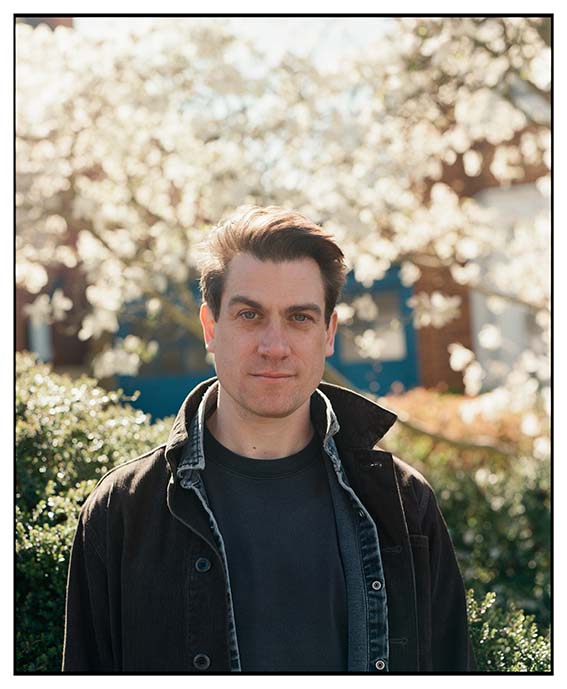
Image: Jamie Sutcliffe by Robin Christian
Jamie is a writer, curator, and co-director of Strange Attractor Press. His work explores artistic encounters with science fictive fabulation, the politics of gaming, animation and its multiple entanglements with developments in the life sciences, haunted media, and the persistence of myth, all understood as technologies of selfhood.
His essays, interviews and reviews have been published internationally by Art Monthly, Art Review, e-flux Criticism, Frieze, Rhizome and The White Review. He is the editor of Documents Of Contemporary Art: Magic, published by The Whitechapel Gallery and The MIT Press, and co-editor of Weeb Theory, a collection of theoretical resources for artists encountering the intermedial fan cultures of animatio
Join us for a free guided tour of Bonington Gallery’s latest exhibition with BSL interpretation.
Book your free place and enjoy a tour of Bonington Gallery’s third exhibition of the season, Weird Hope Engines curated by David Blandy, Rebecca Edwards and Jamie Sutcliffe, led by the Gallery’s Director Tom Godfrey.
Along with an introduction to the exhibition, Tom will talk through the accompanying Vitrines exhibition Nottingham Subcultural Fashion in the 1980s.
This event will last up to an hour. Please meet inside Bonington Building in the foyer space outside the Gallery doors at 12.55 pm. Free and open to all, booking required.
Organised by Neeraj Bunkar, a PhD student in the School of Arts and Humanities at Nottingham Trent University, The Dalit and Adivasi Film Festival (DAFF) 2025 is a platform to showcase dynamic and transformative works in visual culture created by Dalit and Adivasi filmmakers. These communities have a significant tradition of storytelling, yet their voices are often marginalised or overlooked in mainstream film circuits. DAFF seeks to amplify their narratives, perspectives, and creative expressions by bringing their work to a broader audience.
More than just a celebration of cinema, DAFF 2025 aims to foster critical engagement and dialogue. The festival will present a curated selection of twelve films, including documentaries, short films, and docu-fictions, all crafted by Dalit and Adivasi filmmakers. Each screening will be followed by interactive discussions with the filmmakers, providing an opportunity for audiences to engage with the socio-political realities explored in their work.
We dedicate DAFF 2025 to the memory of P. K. Rosy, the first actress of Malayalam cinema and a pioneering figure in the industry.
The festival will feature five sessions, commencing with the acclaimed film Swapnaayanam, directed by K.O. Akhil, the signature film of the 2024 International Film Festival of Kerala. This not only pays tribute to P. K. Rosy as a trailblazer in Malayalam cinema but also highlights the historical contributions of the working class in shaping the cinematic landscape.
Join us in celebrating cinema that amplifies marginalized voices and honours the enduring legacies of Dalit and Adivasi communities.
All screenings and discussions are online and can be accessed via the links below.
Neeraj Bunkar is a PhD scholar at the School of Arts and Humanities, Nottingham Trent University, United Kingdom. His research focuses on caste, Dalit identity, Rajasthani folklore, oral history, and cinema, with a particular emphasis on Rajasthan-based Hindi cinema from his standpoint as a Ambedkarite. His writings include the article “Spring Thunder: Adivasi Resistance for ‘Jal, Jangal, Jameen’” (2022) in the PostScript section and the book review “Subalternity at the Centre: A Young Diary Demands Radical Change” (2024), both published in Economic and Political Weekly. He also contributes regularly to platforms such as Forward Press and RoundTable India.
Pratik Parmar is an anti-caste filmmaker from Gujarat, renowned for his compelling narratives on Dalit dissent, deeply rooted in the heartlands of his home state. Since 2014, Pratik has been dedicated to filmmaking, shedding light on the often-overlooked stories of resistance and resilience within marginalized communities. His work amplifies ongoing struggles that are frequently ignored by mainstream media and cinema.
Prashant More is a filmmaker from a Dalit family and a first-generation learner. He graduated in Direction from the Film and Television Institute of India (FTII), Pune, where he honed his craft. His work has been showcased at several film festivals, including the Mumbai International Film Festival (MIFF), Bangalore International Film Festival, and the Indian Film Festival of Stuttgart, Germany. His feature screenplay was selected for the Writers Ink Feature Film Screenplay Writing Lab 2024-25. Based in Mumbai, Prashant explores themes of identity, caste, social issues, and human experience, aiming to bring diverse perspectives to the screen for both local and global audiences.
Palani Kumar, hailing from Jawaharlal Puram in Madurai, pursued engineering to fulfill his mother’s wish but found his passion in photography. While still a student, he took a loan to buy his first camera and later worked as a cinematographer for Kakoos, a documentary on manual scavengers in Tamil Nadu. His first photography exhibition, Naanum Oru Kullanthai, highlighted the lives of manual scavengers’ children. Since 2019, as a fellow of the People’s Archive of Rural India (PARI), he has been documenting the lives of working-class women across India. He is also part of Pep Collective, a forum for socially responsible photographers. Recognized as one of Anandha Vikatan’s ‘Top Ten Humans 2019,’ he has received multiple accolades, including the Dayanita Singh-PARI Documentary Photography Award (2022). Kumar’s work was recently featured at the Primary Gallery in Nottingham, where he was invited to discuss his personal journey and projects addressing issues such as manual scavenging, “honour killings”, and the systemic exploitation of working-class and Dalit communities. Through his photography, he continues to amplify the voices of marginalized communities.
K.O. Akhil is an independent writer, director and cinematographer based in Mumbai. He holds a master’s degree in Cinematography from the prestigious Film and Television Institute of India (FTII), Pune (2018 batch), and has also studied at KRNNIVSA, Kerala. His artistic journey began at the National Institute of Fashion Technology (NIFT), New Delhi, where he graduated with honours in Communication Design. His talent for visual storytelling emerged early in his career when his graduation project, a hybrid short film titled Incarnate Deity, which explores the mystical Theyyam ritual of Kerala, earned him the Best Communication Design Project Award in 2016 at NIFT Delhi.
Oneiric Odyssey (1 min, Swapnaayanam) traces the origins of Malayalam cinema, from the historic announcement of the first screening of Vigathakumaran (The Lost Child) in a rural village to the emergence of a new theatre in the city of Trivandrum. Through the courageous legacy of P.K. Rosy, Malayalam cinema’s first actress, and the struggles of the working class, the film crescendos with the unveiling of Lanka Lakshmi – the iconic symbol of IFFK, representing unity, cultural diversity, and the enduring strength of cinema.
Udmashan, a short film directed by Prashant More (5 mins, English), is a psychological thriller about a young writer chasing a lead on a rainy night who stumbles into a surreal nightmare in a decaying chawl. Strange figures blur reality, plunging her into darkness and madness. Truth or ruin—what awaits?
Ranjis, a short film directed by Prashant More (15 mins, Ahirani & Marathi): In rural India, 10-year-old Manoj endures caste oppression and family turmoil. His scavenger father’s rage and society’s cruelty push him to the edge. A discarded object becomes his escape—until a final, explosive act of defiance changes everything.
Project Heartland, a documentary directed by Pratik Parmar (44 Mins, Gujarati), captures the struggles of people from marginalized communities, primarily Dalits in Gujarat. It highlights the courage and determination of Dalit women and men as they assert their rights despite overwhelming odds. By documenting these stories of resilience, Project Heartland seeks to ensure that these brave individuals are known, recognized, and serve as an inspiration to others.
Shohini Barman is a doctoral candidate in the School of Arts and Humanities at Nottingham Trent University. She completed her BA and MA at Jadavpur University, Kolkata, India. Her PhD research focuses on Dalit literature in Bengal.
Lipika Singh Darai is an Indian filmmaker, editor, and sound recordist from Odisha. She graduated from the Film and Television Institute of India (FTII) in 2010, specializing in sound recording and design. Belonging to the Ho indigenous community, Darai has focused her work on socio-cultural themes, particularly those related to Odisha. Throughout her career, Darai has received four National Film Awards in the non-feature section for direction, sound recording, and narration. Her debut film, A Tree a Man a Sea (2012), earned her the Best Debut Film of a Director award. She continued to explore pressing social issues in her subsequent works, such as Some Stories Around Witches (2015), which delves into the humanitarian crisis of witch-hunts in Odisha, and The Waterfall (2017), a short fiction film highlighting the struggle to protect a dying waterfall. In 2023, Darai’s documentary Night and Fear premiered at the International Film Festival Rotterdam in the Ammodo Tiger Short competition. She is currently developing her debut fiction feature, Birdwoman, which has received support from the Hubert Bals Development Fund. Additionally, she was recognized as one of the ten creative talents in BAFTA Breakthrough India 2023. Darai’s work is deeply rooted in the cultural and social landscapes of Odisha, reflecting her commitment to bringing regional stories to a broader audience. Her films often explore themes of social justice, cultural heritage, and the resilience of marginalized communities.
Seral Murmu is a filmmaker who graduated from the prestigious Film and Television Institute of India, Pune. His films focus on tribal issues, identity, and the struggle for equality and justice. Through his work, he aims to strengthen the tribal resistance movements taking place across different parts of India. Belonging to the Santhal tribe, Seral Murmu was born and raised in Ghatshila, a small town on the banks of the Subarnarekha River. He began his journey in filmmaking by assisting documentary filmmakers while pursuing an undergraduate degree in Mass Communications at St. Xavier’s College, Ranchi, Jharkhand. During this time, he closely observed the power of cinema as a medium for change, which inspired him to become a filmmaker and share his own stories with the world. Ranchi has been an epicentre for tribal activists fighting for their rights and justice. Murmu became closely associated with these activists, collaborating with them and creating documentaries to amplify the voices of the unheard. As a cinematographer and editor, he has contributed to the making of eight documentaries and short fiction films. His short films Rawaah and Sondhayni have been screened and received awards at both national and international film festivals. He is currently working on a feature-length documentary about the history of Santhali cinema. Additionally, he has been commissioned to make two documentaries for the Ramdayal Munda Tribal Research Institute in Ranchi and is developing a feature-length Santali film. Murmu has a deep interest in tribal folklore, myths, arts, and folk songs, all of which serve as the foundation of his storytelling.
Mrigakshi Das hailing from Odisha, India, is a doctoral candidate at the School of Arts and Humanities, Nottingham Trent University, UK. She holds both a Master’s and a Bachelor’s degree in English from the University of Delhi, India. Her current research focuses on Adivasi literature, and her thesis is titled “Adivasi Literature and Cinema: Exploring Adivasi Alterity and Assertion”. Her areas of interest include Dalit literature, Adivasi literature, and decolonial and postcolonial studies.
Dr Nicole Thiara is Co-lead of Nottingham Trent University’s Postcolonial and Global Studies Research Group and Principal Investigator on the AHRC-funded Research Network Series ‘Writing, Analysing, Translating Dalit Literature’ and its Follow-on Grant ‘On Page and on Stage: Celebrating Dalit and Adivasi Literatures and Performing Arts’. She teaches postcolonial and contemporary literature at Nottingham Trent University, UK. Her area of research is Dalit and South Asian literature, and her current research project is the representation of modernity in Dalit literature.
Dr Judith Misrahi-Barak is a Professor of Postcolonial Studies at Université Paul Valéry Montpellier 3, France, specializing in Caribbean, Indo- and Sino-Caribbean literatures, diaspora, and migrant writing. She has published widely, contributing to volumes such as Tracing the New Indian Diaspora (2014), Turning Tides (2019), and Windrush (1948) and Rivers of Blood (1968): Legacy and Assessment (2019). She is the General Editor of the PoCoPages series (Borders and Ecotones in the Indian Ocean, 2020). Her latest works include chapters on Edwidge Danticat (Bloomsbury Handbook, 2021), Sino-Caribbean literature (Caribbean Quarterly, 2021), and Kala Pani Crossings (co-edited, 2021). Her monograph, Entre Atlantique et océan Indien: les voix de la Caraïbe anglophone, was published in 2021. Her recent research explores Dalit literatures, having co-led AHRC projects on Dalit and Adivasi literature and performance (2014–23). She co-edited The Routledge Companion to Caste in Cinema in India (2022).
The Waterfall (21 mins, 2017, English) traces the evolution of a young city boy, Karun, to appreciate the value of the environment as well as think critically about climate change and development. On a trip to his ancestral home in the interiors of the state of Orissa in India, he reflects on the nature of his relationship with a beautiful landscape and its relationship in turn with his city life.
Sasandiri (40 mins, Mundari and Hindi) tells the story of the tribal rights movement in Jharkhand, following the work and struggles of prominent tribal activists from within the community. The title Sasandiri refers to a tombstone, which also serves as a landholding marker and record for the tribals. The film delves into the lives of these activists as they fight for their community’s rights, highlighting their struggles, challenges, and triumphs. It explores the complexities of advocating for land and cultural heritage, offering a glimpse into the history and significance of the tribal rights movement in Jharkhand.
Anjitha V P is a passionate filmmaker and writer from Kerala with an academic and professional background in cinema. She holds a BA from Maharaja’s College, Ernakulam, and an MA from the University of Hyderabad. Anjitha has worked as a Process Associate at Genpact, Hyderabad, but her true calling lies in filmmaking. She has served as an Assistant Director in films like Pumpkin (short film directed by Meccartin) and Divorce (KSFDC-funded feature film directed by Mini IG). She also contributed as an Assistant Scriptwriter for the Malayalam film Nizhalazham (2022) directed by Rahul Raj. As a filmmaker, Anjitha wrote and directed the Malayalam short film Vyadhi, which received critical acclaim and multiple awards, including Best Short Film at KIFF – Kalinga 2023, Special Jury Mention at MediaOne Academy Film Festival 2023, and Best Screenplay at Kayal Sammelanam Short Film Festival 2023. Her journey in cinema reflects a deep commitment to storytelling and an evolving creative vision.
Rocky Mol Selvaraj is a South Indian visual artist originally from Pudukkottai and based in Nottingham. Her practice encompasses painting and photography, exploring her Dalit identity and personal experiences through various notions of skin. After earning an MA in Fine Arts from the University of Lincoln, she continues to examine skin and identity while dreaming beyond, incorporating surrealistic metaphors. For her, apples represent everything—her deepest fears, desires, hopes, the idea of love, family, home, beauty, equality—everything real and imaginary. Her works have been exhibited in various galleries across the East Midlands and are currently part of the exhibition Kolam at Primary, Nottingham. To read more about the artist’s practice, visit: Apples and People – Skin
Kalpana Ambedkar is a passionate filmmaker and multimedia professional with over five years of experience in filmmaking, video production, and programme organizing. With a strong commitment to social justice, her work focuses on thought-provoking narratives addressing caste, gender, and Dalit issues in Indian society. She holds a Master’s in business management (Finance) and a Bachelor of Arts in Economics from NMCC, Marthandam. Beyond filmmaking, she pursues creative writing, curating talent, and event planning. Kalpana has directed the music video Thodaatha, produced by Bigson Records and released by Sony Music South. She is also an Assistant Director on Thandakaaranyam, a socio-political film by Athiyan Aathirai under Neelam Productions. As an Executive Producer, she collaborates with Arivu & The Ambassa, a Chennai-based multi-genre music band that amplifies voices for social justice. Previously, she played a key role in organizing Margazhiyil Makkalisai, a ten-day music festival by Neelam Cultural Centre and filmmaker Pa. Ranjith. With a deep passion for storytelling that challenges social norms, Kalpana continues to push boundaries in Indian cinema, using art as a tool for awareness and change.
Neeraj Bunkar is a PhD scholar at the School of Arts and Humanities, Nottingham Trent University, United Kingdom. His research focuses on caste, Dalit identity, Rajasthani folklore, oral history, and cinema, with a particular emphasis on Rajasthan-based Hindi cinema from a Dalit standpoint. His writings include the article “Spring Thunder: Adivasi Resistance for ‘Jal, Jangal, Jameen’” (2022) in the PostScript section and the book review “Subalternity at the Centre: A Young Diary Demands Radical Change” (2024), both published in Economic and Political Weekly. He also contributes regularly to platforms such as Forward Press and RoundTable India.
The short film Vyadhi(7 mins, Malayalam) by Anjitha V. P. follows two ladies who meet at a common service centre and become friends. However, as their conversation begins, everything starts to change.
The short film Break The Silence (40 mins, Tamil) is directed by Kalpana Ambedkar. In the deafening roar of textile machines, where sweat and suffering are woven into every thread, silence is the price of survival. Behind locked gates, countless young women endure unspeakable abuse—trapped, unheard, and forgotten. Break The Silence exposes the brutal realities of gender-based violence within these factories, where power preys on the helpless and fear keeps lips sealed. But one woman refuses to be another nameless victim. After enduring relentless torment, she runs—fleeing through the shadows, leaving behind friends who weren’t as lucky. With nothing but fear in her chest and the fire of survival in her heart, she fights her way home. Villagers become her shield, guiding her to safety. But the scars of her past refuse to fade. This time, she’s not running. She’s returning—not alone but armed with justice. With the help of a social worker, she storms the very place that once broke her. Twenty-five girls. Twenty-five stolen lives. Today, they walk free. This is not just a story of escape. It’s a story of uprising, of defiance—of breaking the silence, forever.
Neeraj Bunkar is a PhD scholar at the School of Arts and Humanities, Nottingham Trent University, United Kingdom. His research focuses on caste, Dalit identity, Rajasthani folklore, oral history, and cinema, with a particular emphasis on Rajasthan-based Hindi cinema from a Dalit standpoint. His writings include the article “Spring Thunder: Adivasi Resistance for ‘Jal, Jangal, Jameen’” (2022) in the PostScript section and the book review “Subalternity at the Centre: A Young Diary Demands Radical Change” (2024), both published in Economic and Political Weekly. He also contributes regularly to platforms such as Forward Press and RoundTable India.
Rupal Bansal is a Ph.D. candidate in English Literature at Nottingham Trent University, UK. Her research interests lie at the intersection of Night Studies, Partition Studies, and Violence, Trauma, and Memory Studies. Focusing on the phenomenological experiences of the night, her dissertation examines how acts of violence, migration, and remembering are structured within the ‘chronotope’ of the night in narratives about the Partition of India in 1947.
Purnachandra Naik is a researcher specializing in Dalit literature. He completed his PhD at NTU and is the author of the forthcoming Routledge book Reading the Rejected: Dirt in Dalit Literature. His research explores caste, marginality, and literary expressions of resistance. Naik has contributed extensively to journals and edited volumes, examining various aspects of Dalit narratives across literature and cinema. His works published in Economic and Political Weekly include Baby Kamble to Bama: Dalit Women Write Differently, “Baluta” and “Joothan” amid Humiliation, Sparks of Life amid the Dead, Roars of Dalit Audacity, and A New Note to the Polyphony. His book chapter Screening Caste: ‘Untouchable’ Body, Labour, and Remuneration in Lagaan appears in The Routledge Companion to Caste and Cinema in India (2022). He has also published The Luminous Voice of an Enslaved Character in Outlook (2024), Contemporary Shades of Kerala and Many Idioms of Caste and Untouchability in The Book Review. Additionally, his book chapter Studying Caste Up: Yashica Dutt’s Coming Out as Dalit is part of Subalternities in India and Latin America (2021). His scholarship critically engages with caste, humiliation, and assertion in Dalit narratives, offering nuanced insights into their literary and cinematic representations.
Soumik Hazra is currently pursuing his PhD, titled “In Search of the Decentred Other: Post-Millennium Hindi Crime Cinema and Its Expanded Terrains”, at the Cinema Studies Department, School of Arts and Aesthetics, Jawaharlal Nehru University, New Delhi, India. He identifies as a cinephile with an avid interest in new media studies, film philosophy, genre studies, popular culture, and documentary cinema. His work has been published in the journal Widescreen.
Ajay Pateer is a filmmaker and a PhD candidate in Cinema Studies at the School of Arts and Aesthetics, Jawaharlal Nehru University, New Delhi. As a researcher, his current focus lies in cyberactivism and the anti-caste movement. As a filmmaker, he is working in the documentary form.
Red Brick Battleground, a documentary film by Ajay Pateer and Soumik Hazra (125 mins, Hindi) documents the 2024 JNU Students’ Union election, student movements post-2016, and state-backed violence. Blending interviews, electoral coverage, and found footage, it captures JNU’s resilience and broader political realities.
Mahishaa is an Ambedkarite filmmaker based in Bangalore, whose work primarily focuses on urban Bengaluru. His films explore the intersections of caste, gender, and masculinity. He is the founder of Neelavarana, an Ambedkarite artist collective that produces short films, music videos, and documentaries centered on Bahujan stories, created by people from the DBA community. His works have been showcased internationally, including in Melbourne, Australia, Berlin, Germany, and other locations.
Dr Nicole Thiara is Co-lead of Nottingham Trent University’s Postcolonial and Global Studies Research Group and Principal Investigator on the AHRC-funded Research Network Series ‘Writing, Analysing, Translating Dalit Literature’ and its Follow-on Grant ‘On Page and on Stage: Celebrating Dalit and Adivasi Literatures and Performing Arts’. She teaches postcolonial and contemporary literature at Nottingham Trent University, UK. Her area of research is Dalit and South Asian literature, and her current research project is the representation of modernity in Dalit literature.
Chandrashekara K. is a versatile talent in Kannada theatre and cinema—an international actor, director, filmmaker, and pedagogue specializing in movement and devising. He has participated in several international theatre experiments, traveling to countries like Japan, Germany, Lebanon, South Africa, and Switzerland. Chandrashekara has played lead roles in Kannada films such as Gavisiddha and Mahasampark and has directed innovative plays like Keri Haadu and Panchamapada. He holds a postgraduate degree from the Department of Performing Arts at Bangalore University and is a founding member of Jangama Collective. Committed to building theatre movements with marginalized communities and sexual minorities, he is also preparing a collection of his stories for publication. His current performance in the play Bob Marley from Kodihalli has further enhanced the production’s impact.
Ampee Panyang is a filmmaker and screenwriter from Arunachal Pradesh, currently based in Mumbai, Maharashtra. She is a graduate of the prestigious Film and Television Institute of India (FTII), Pune, specializing in Direction and Screenplay Writing. In addition to her filmmaking career, she is a film professor associated with several renowned film institutes in Mumbai.
Neeraj Bunkar is a PhD scholar at the School of Arts and Humanities, Nottingham Trent University, United Kingdom. His research focuses on caste, Dalit identity, Rajasthani folklore, oral history, and cinema, with a particular emphasis on Rajasthan-based Hindi cinema from a Dalit standpoint. His writings include the article “Spring Thunder: Adivasi Resistance for ‘Jal, Jangal, Jameen’” (2022) in the PostScript section and the book review “Subalternity at the Centre: A Young Diary Demands Radical Change” (2024), both published in Economic and Political Weekly. He also contributes regularly to platforms such as Forward Press and RoundTable India.
Babasaheb In Bengaluru (5 min, Kannada) by Mahishaa is a short film that showcases Dr. B.R. Ambedkar’s statues in Bengaluru, which stand as powerful symbols of resistance and empowerment for marginalized communities. Unlike government-funded monuments, these statues exist through the people’s efforts, embodying his philosophy to “Educate, Agitate, Organise.” Each one tells a story of struggle, reminding millions to carry forward his vision of equality and justice.
Keri Haadu/Song Of Ghetto (33 min, Kannada)is a documentary film by Chandrashekara K. which documents the aftermath of a Dalit protest in Dindguru, Karnataka, sparked by caste discrimination. While their movement succeeded, the community now faces harsh consequences. The film captures their daily struggle, resilience, and survival as an act of resistance.
NON-AC (20:22 mins, Nepali and Hindi), directed by Ampee Panyang, is a short film that follows Maya and Jorge, immigrants from Nepal, as they struggle to make ends meet and survive in Pune, India. Often treated as outsiders, they grapple with the challenges of migration while finding solace in each other’s company. As their friendship deepens, it begins to take on a more profound meaning, rooted in the shared longing for a sense of ‘home.’ The film explores themes of migration, racism, xenophobia, and economic class differences that run deep in Indian society.
Book your free ticket and join us at Bonington Gallery for the Critical Hits Zine Fair.
Marking the launch of our next exhibition Weird Hope Engines (22 March – 10 May) this event celebrates DIY publishing and tabletop gaming with vendors from Nottingham and around the UK including Melsonian Arts Council, Copy/Paste Co-op, Warp Miniatures, Ramshackle Games and others. Critical Hits Zine Fair brings together independent publishers, artists, and writers exploring themes of critical worlding, resistance, and alternative futures.
Alongside a diverse range of zines and collectables to purchase, the Fair also features a programme of talks and conversations with artists from the exhibition including Zedeck Siew and Angela Washko, and panel discussions on fantasy illustration, game design and miniature fabrication with Andrew Walter, Amanda Lee Franck, Scrap World, and Alex Huntley.
Critical Hits Zine Fair also features gaming sessions with David Blandy, Angela Washko and Andrew Walter, as well as a film screening programme delving further into the narratives, aesthetics, and communities that shape these immersive worlds, including the documentaries World of Darkness (2017) and Eye of the Beholder: The Art of Dungeons & Dragons (2019).
Talks:
12:00 – 12:45
Drawing Down The Moon: The Art of TTRPG Illustration
Amanda Lee Franck and Scrap Princess
Chaired by Andrew Walter
13:00 – 13:45
Warped Worlds and Ramshackle Realms: Worlds In Miniature
Curtis Fell (Ramshackle Games) and Alex Huntley (Warp Miniatures)
Chaired by Chris MacDowell
14:00 – 14:45
Art Can Never Be Games!: What Is An Art Game?
Tom Kemp and Angela Washko
Chaired by Jamie Sutcliffe and Rebecca Edwards
15:00 – 15:45
Games Design For Planetary Survival
Chris Bissette, Laurie O’Connell and Zedeck Siew
Chaired by David Blandy
Game play sessions:
11.30am: David Blandy, Eco Mofos
2pm: Andrew Walter, Swyvers
3.30pm: Angela Washko, The Council is in Session
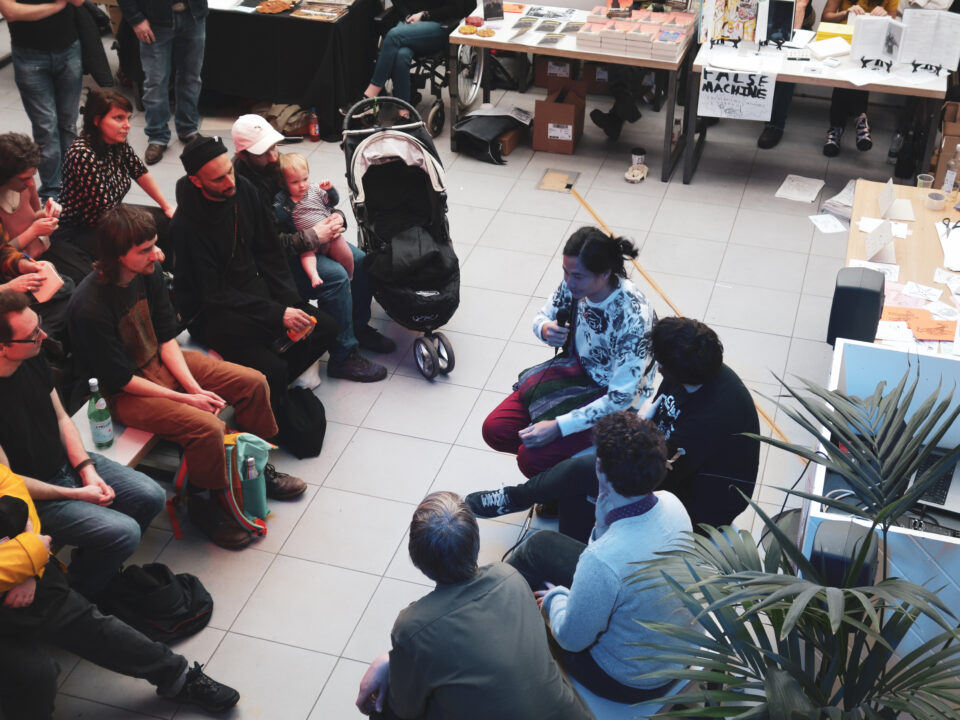
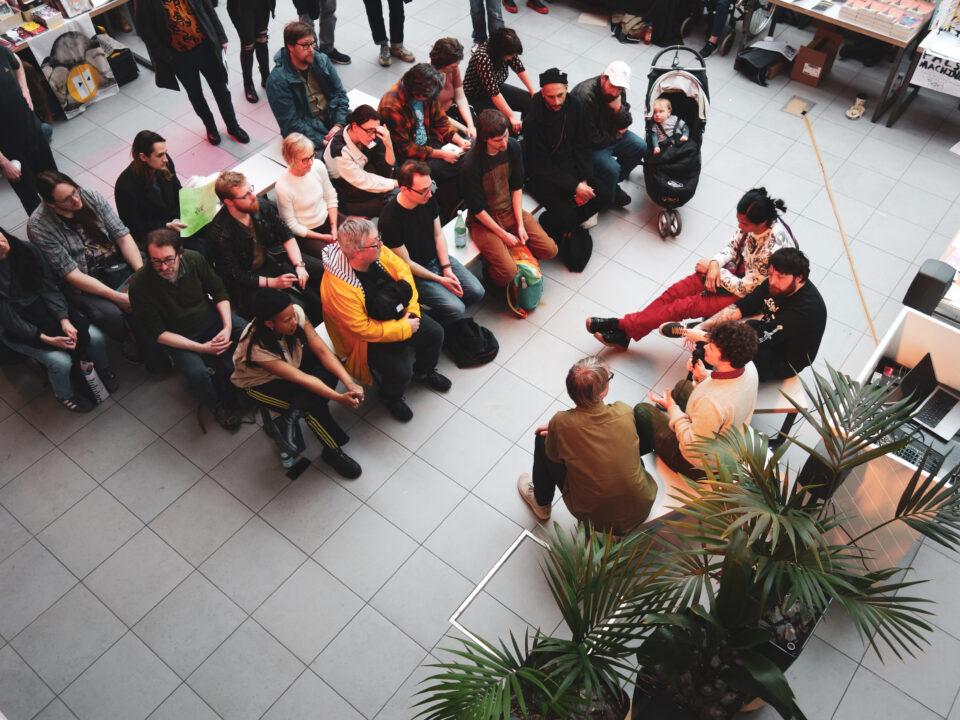
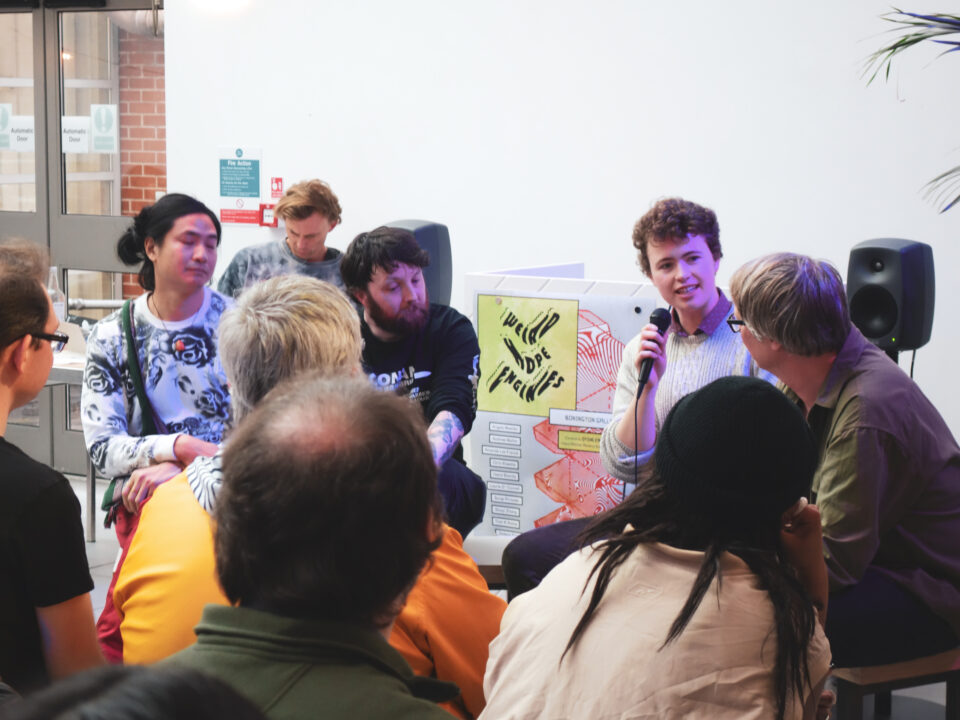
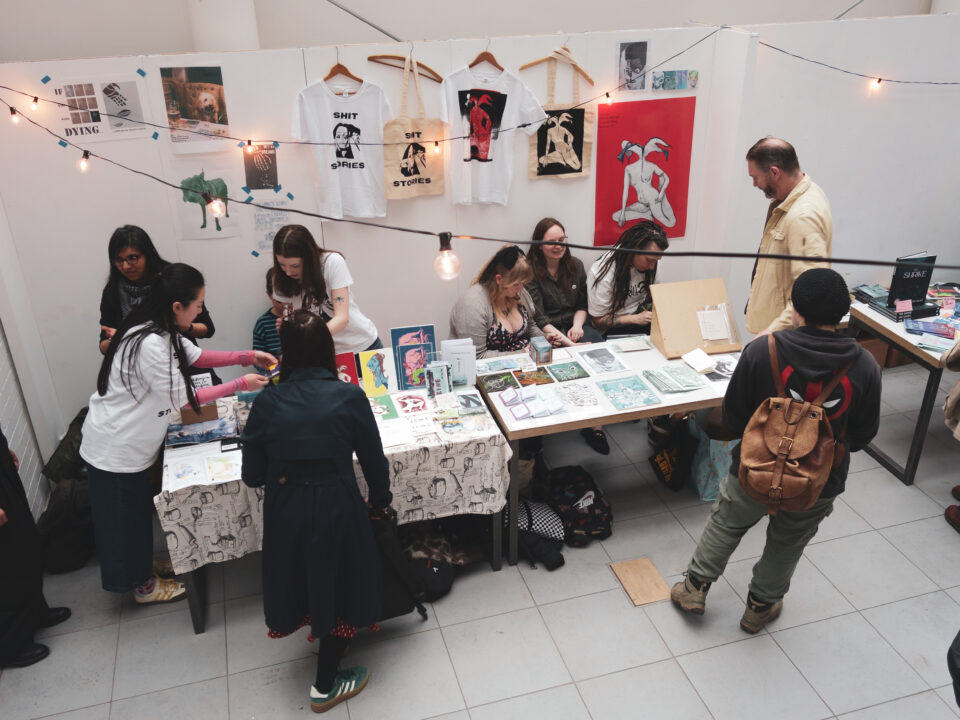
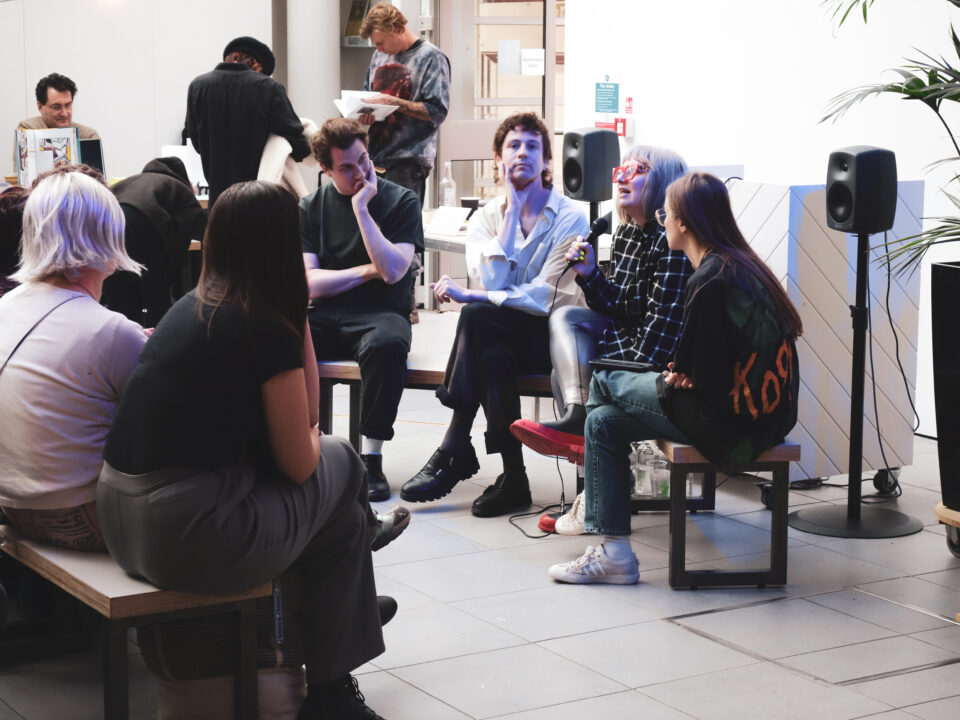
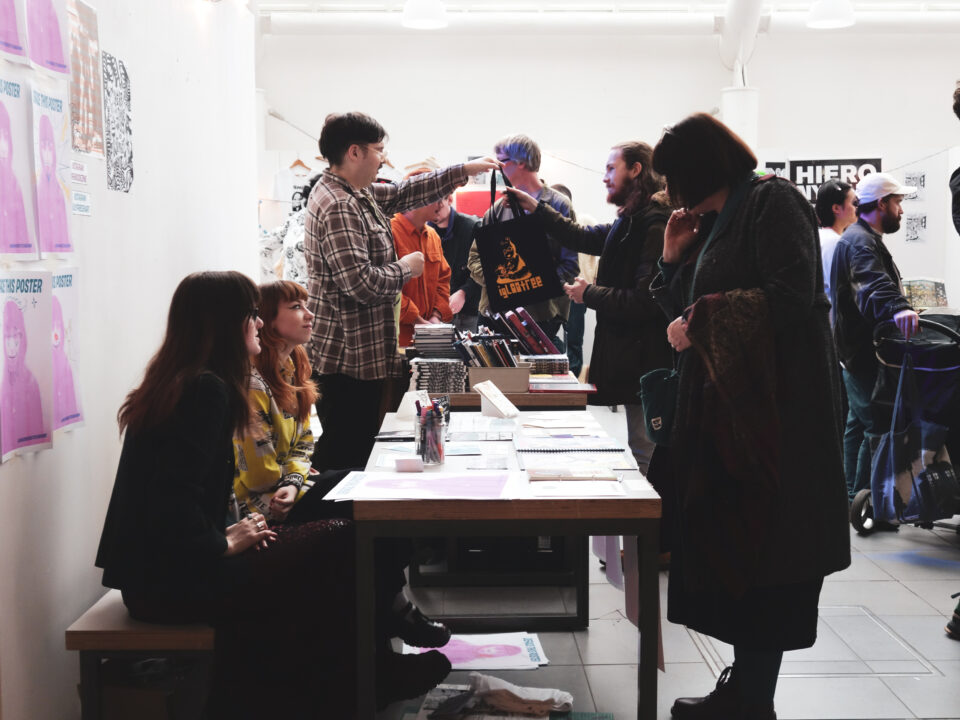
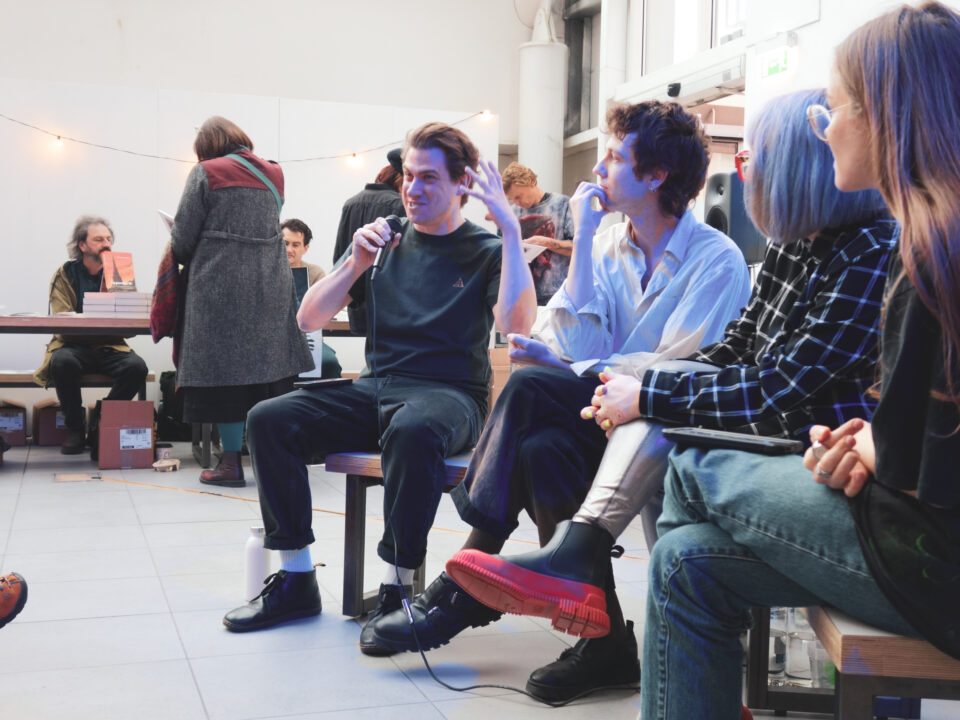
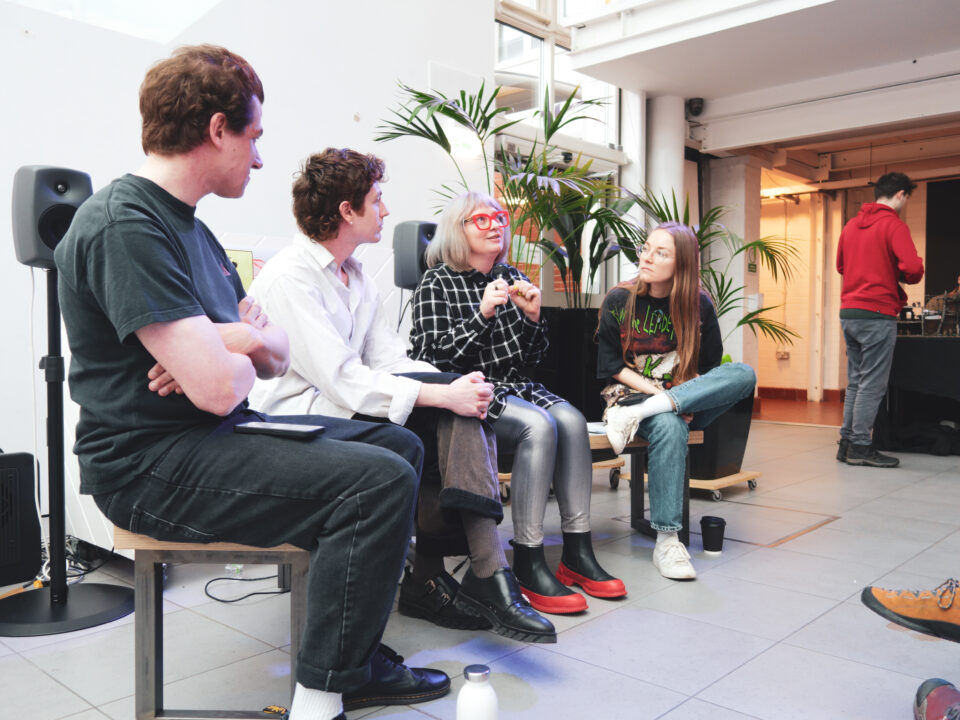
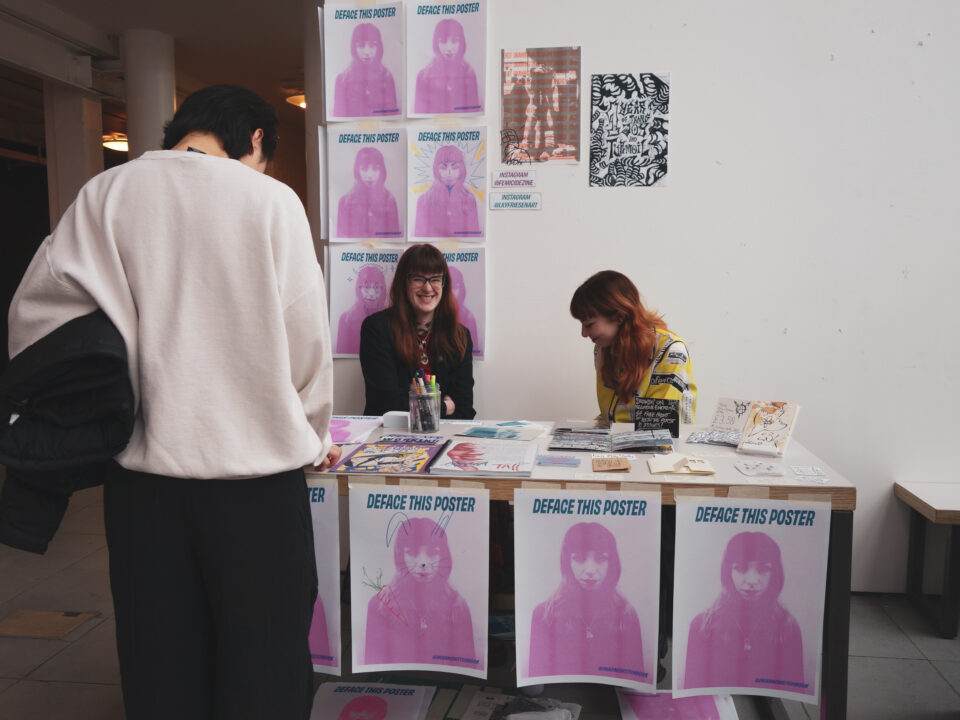
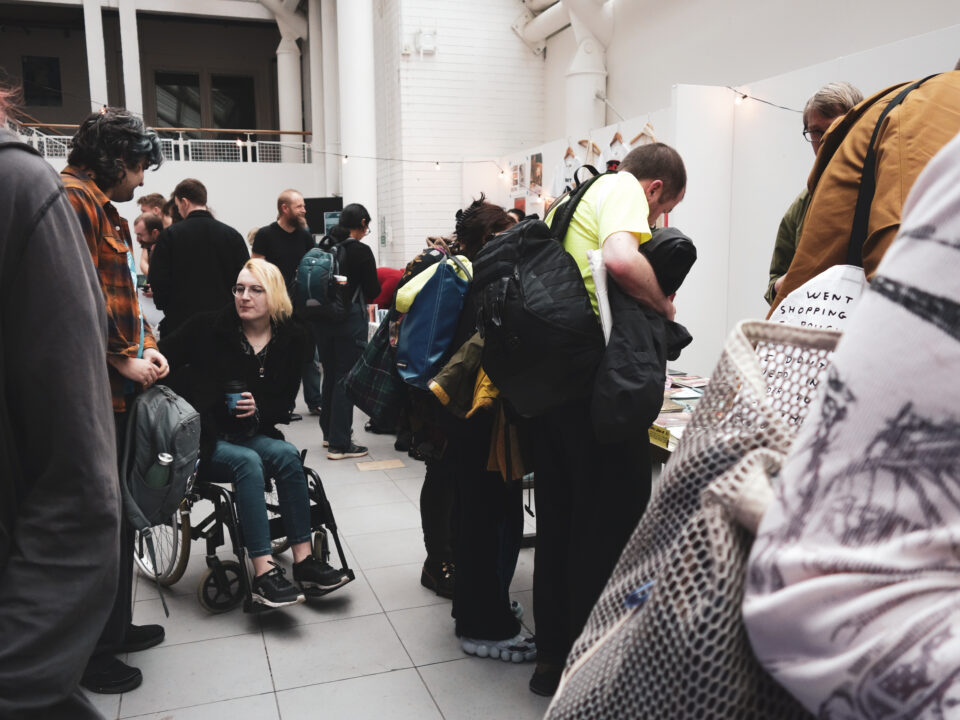
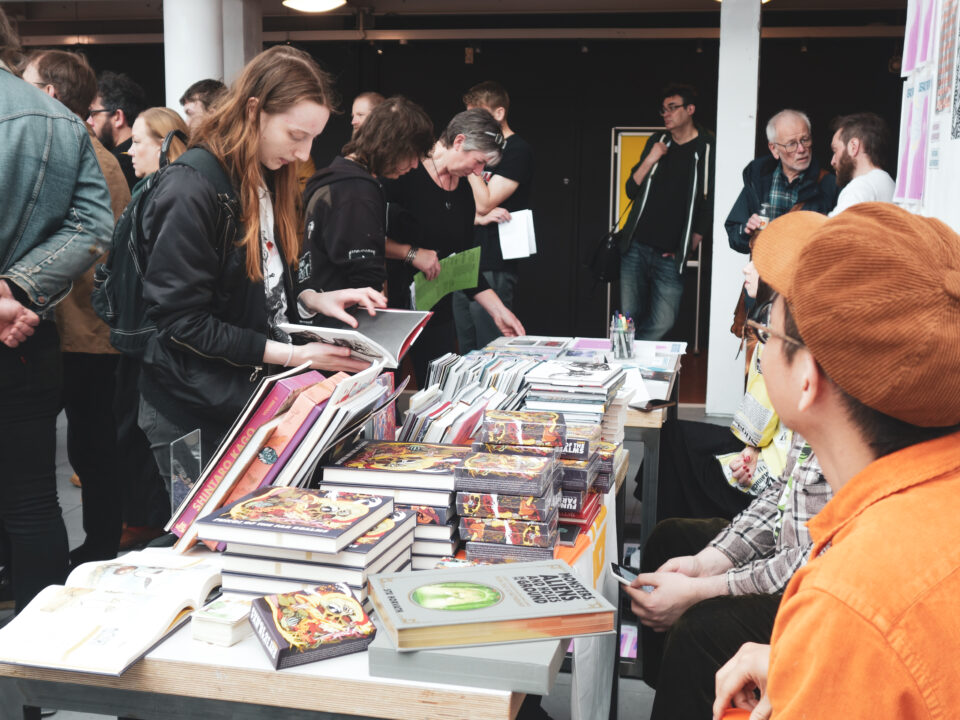
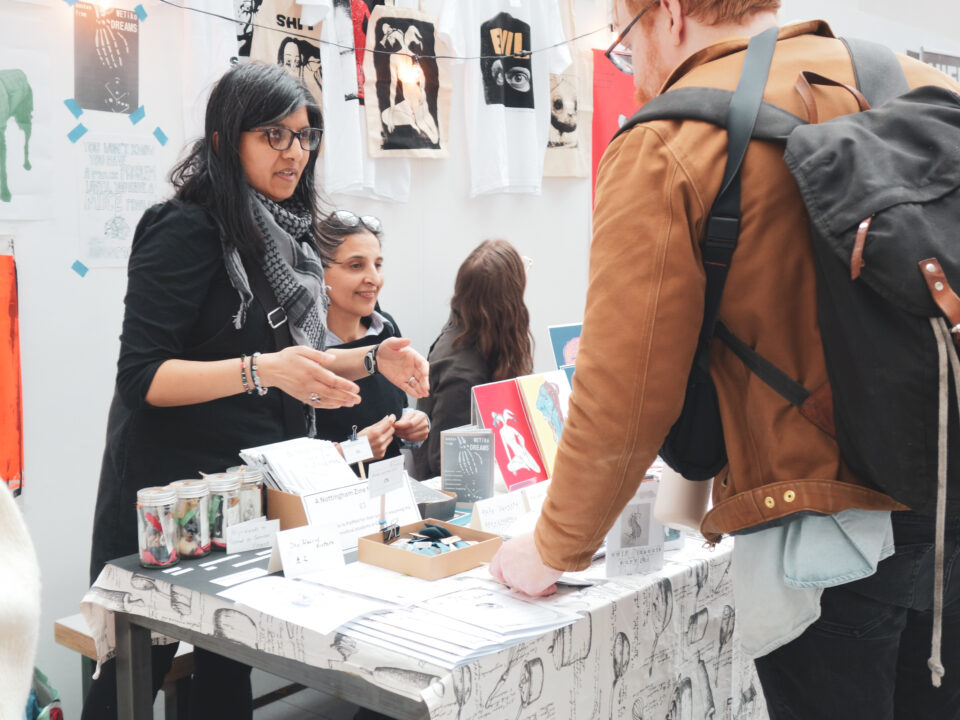
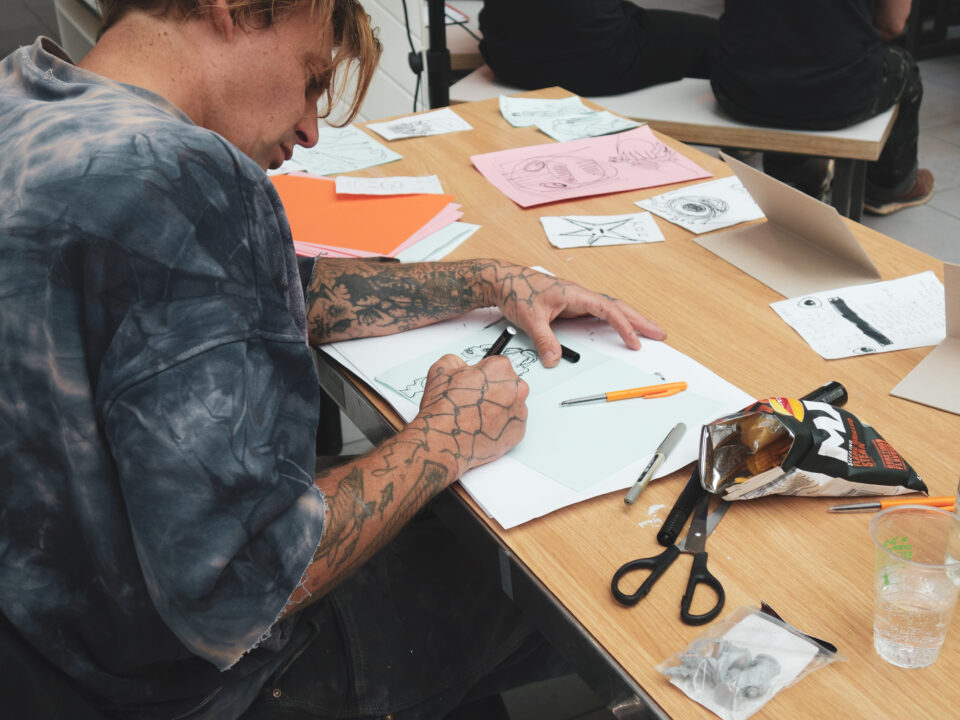
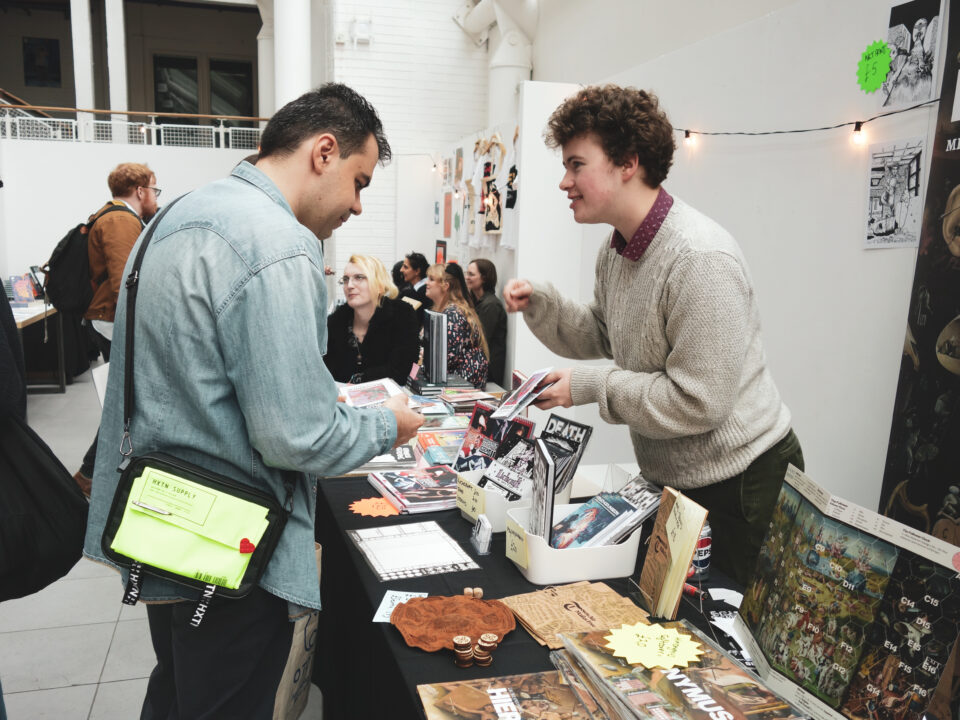
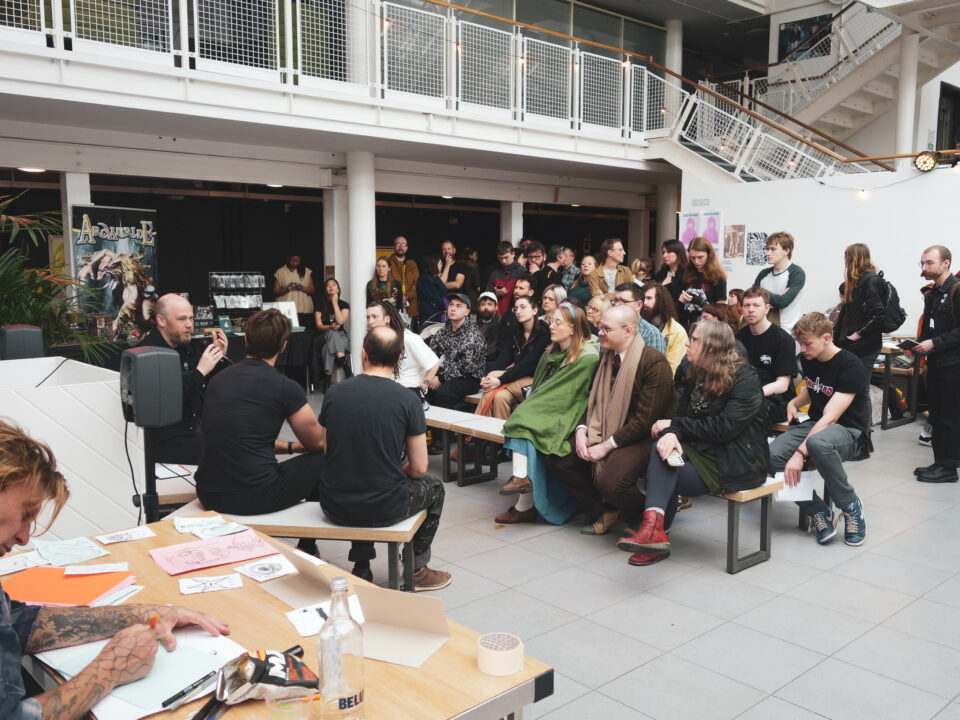
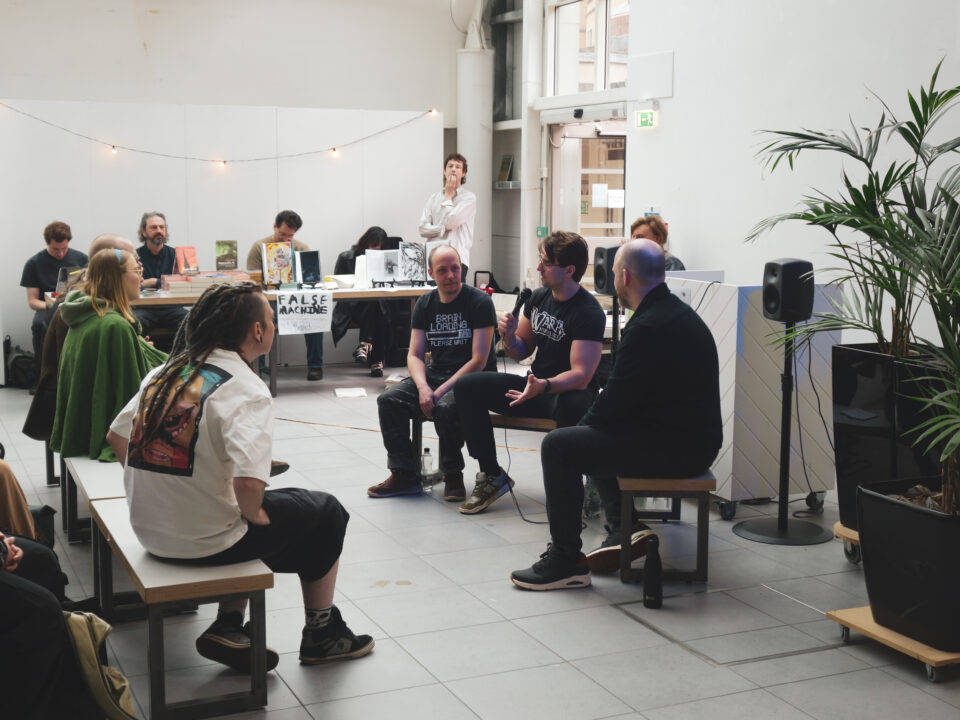
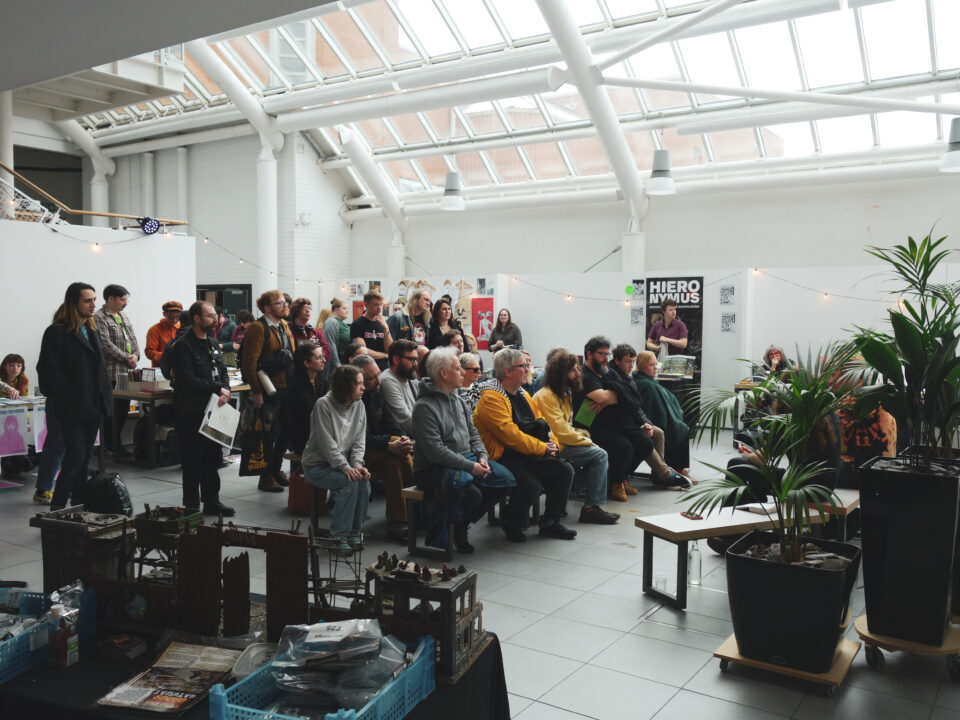
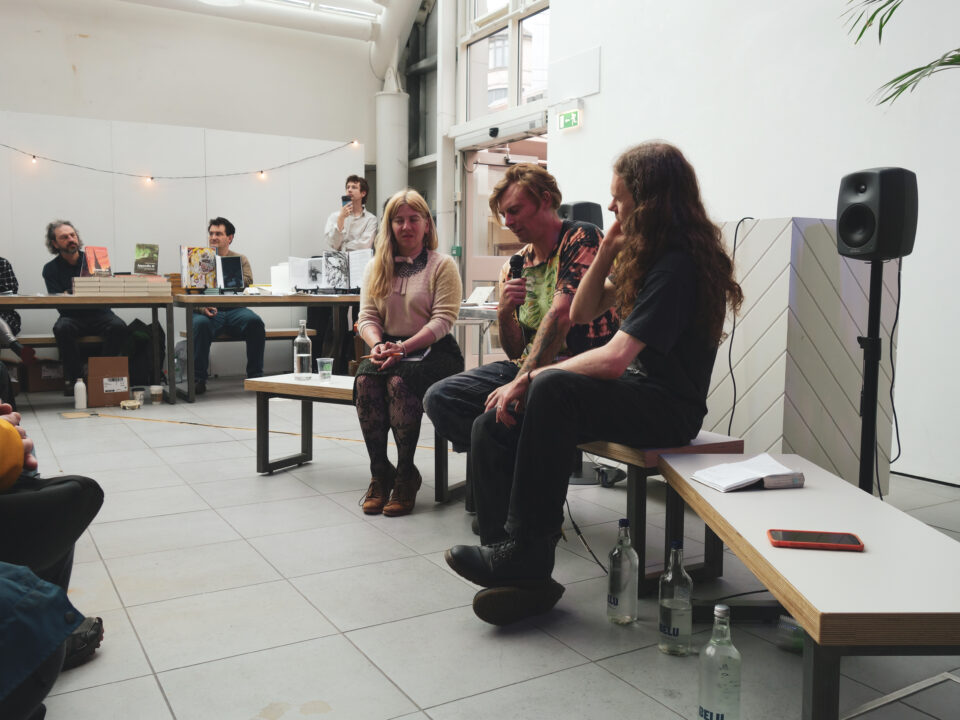
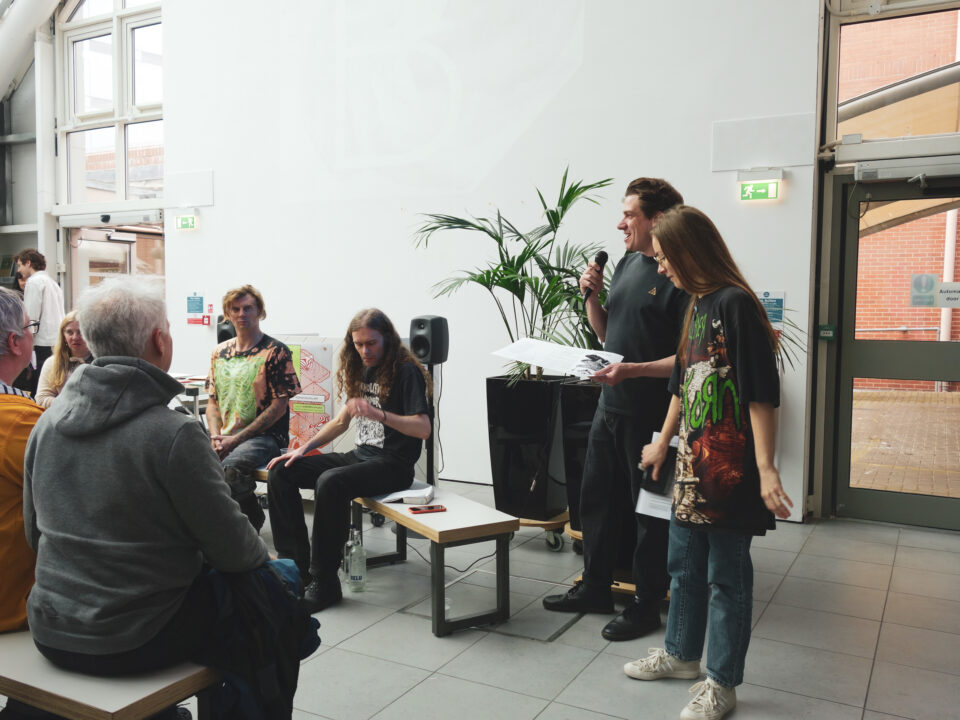
Join us for the launch of our final exhibition of the academic year, exploring tabletop roleplaying games (TTRPGs).
We were delighted to host experimental exhibition Weird Hope Engines, at this first opportunity to come along for a first look around. Attendees enjoyed a free welcome drink, delicious food and music.
The first exhibition of its kind, this exhibition highlights the practices of innovative designers, artists, and writers in the field of independent game design, and brings their work into dialogue with fellow-travellers in the field of critical art practice.
We dedicate the final Vitrines instalment of our 2024/25 season – Nottingham Subcultural Fashion in the 1980s – to archive material, information and clothing that documents the dynamism of the independent fashion scene of Nottingham in the 1980s.
All welcome but reserve your free ticket to avoid disappointment.
